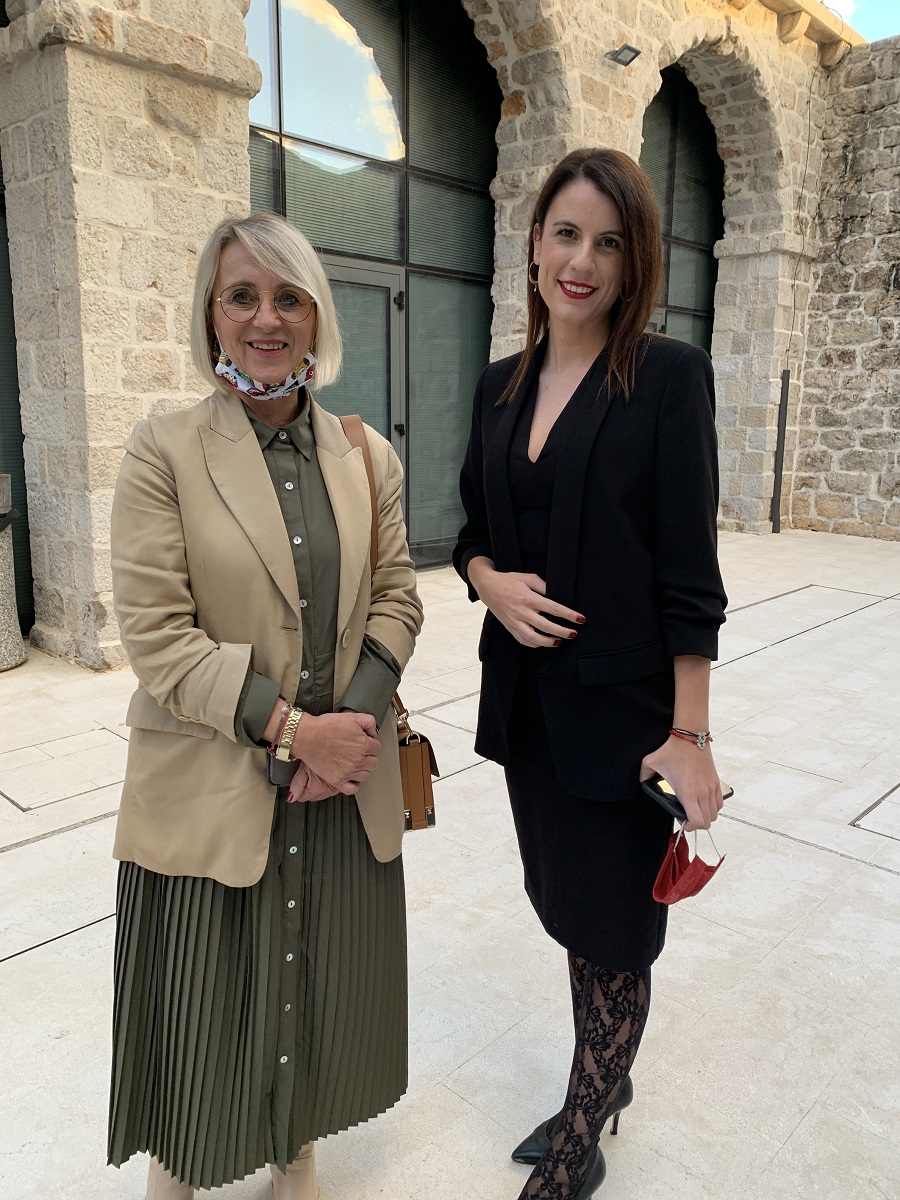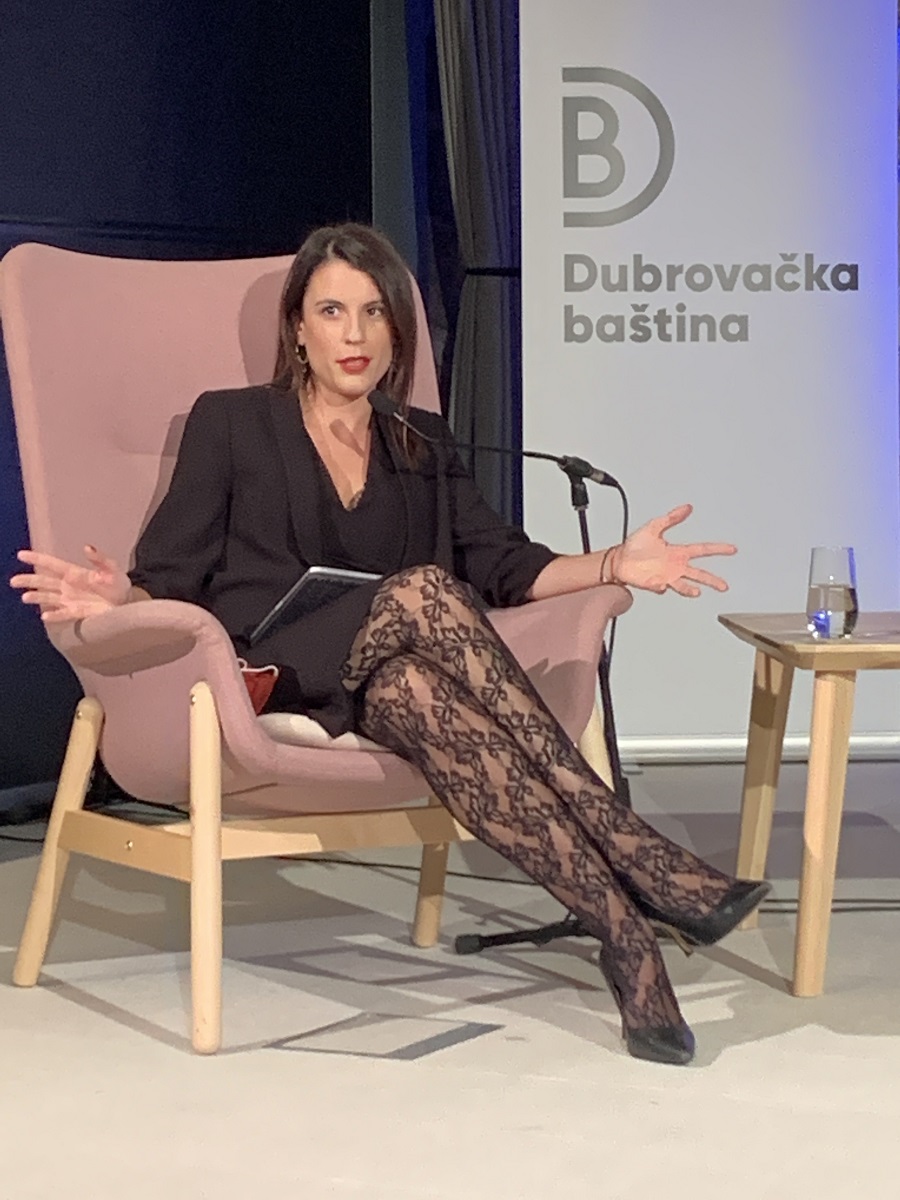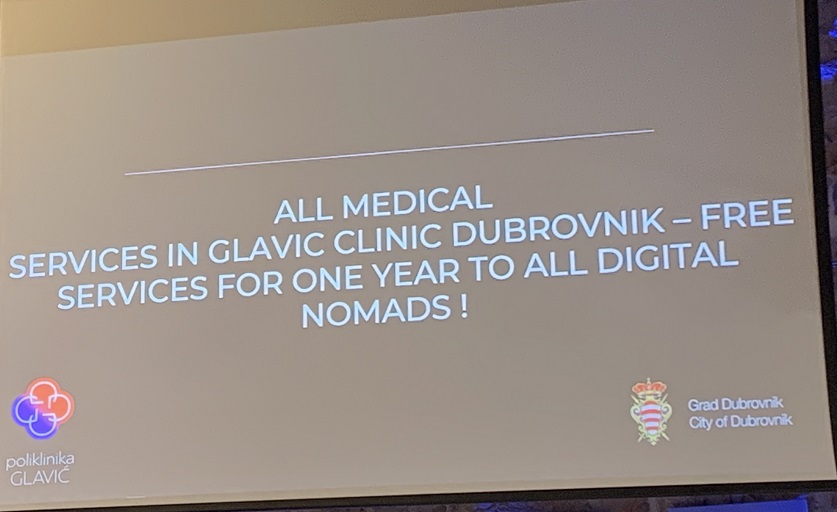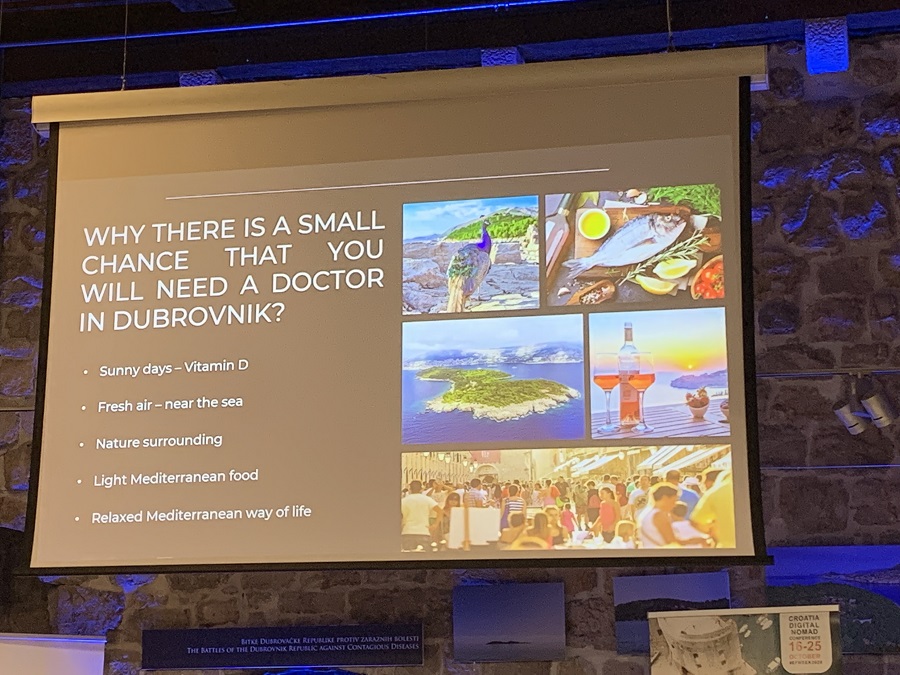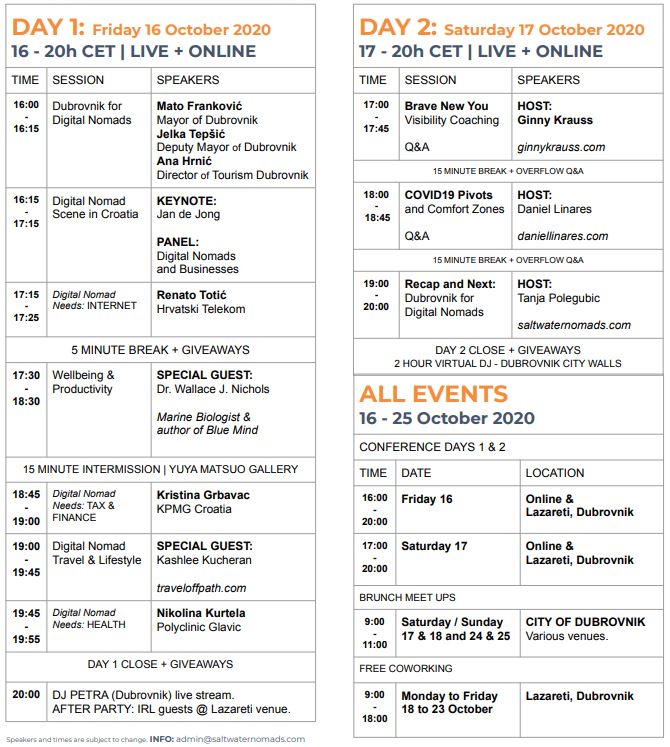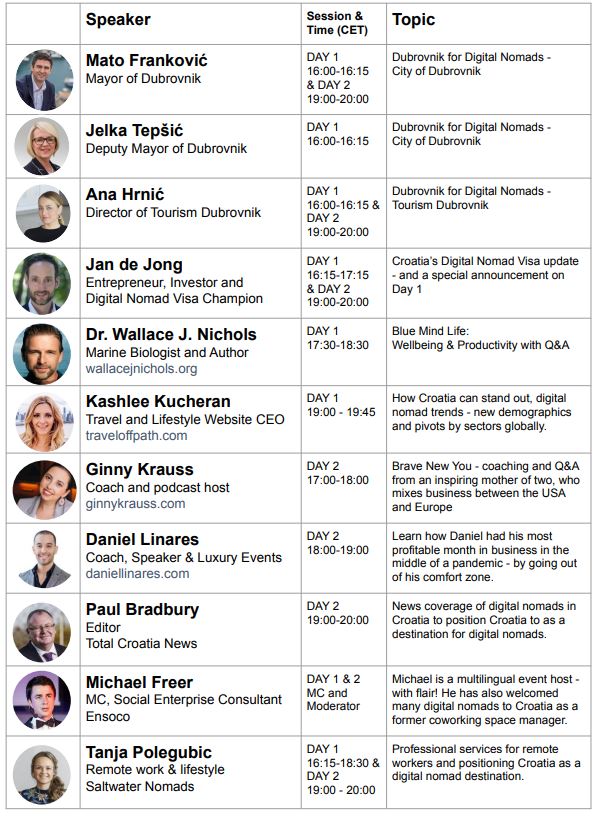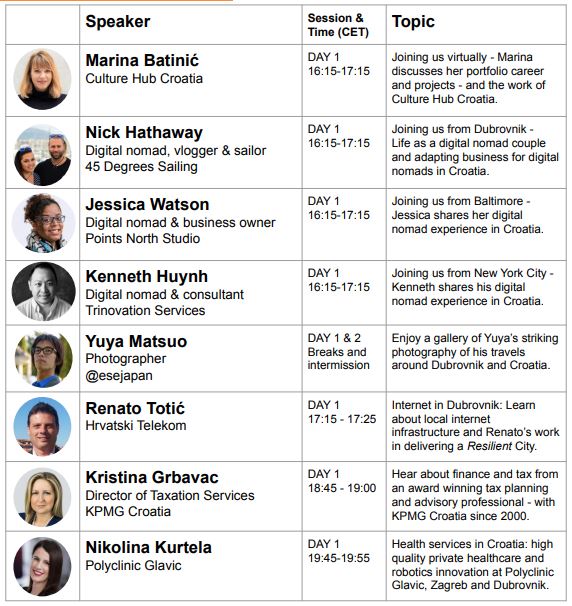Croatia Through the Eyes of a Digital Nomad: Croatia Courts the Global Workforce
October 21, 2020 - Continuing our series, Croatia Through the Eyes of a Digital Nomad, Cyndie Burkhardt takes a behind the scenes look at the recent Digital Nomads for Dubrovnik conference.
Hyping its forthcoming new visa, Croatia’s first conference for digital nomads is fittingly brought to life by a truly international team who live and breathe the lifestyle
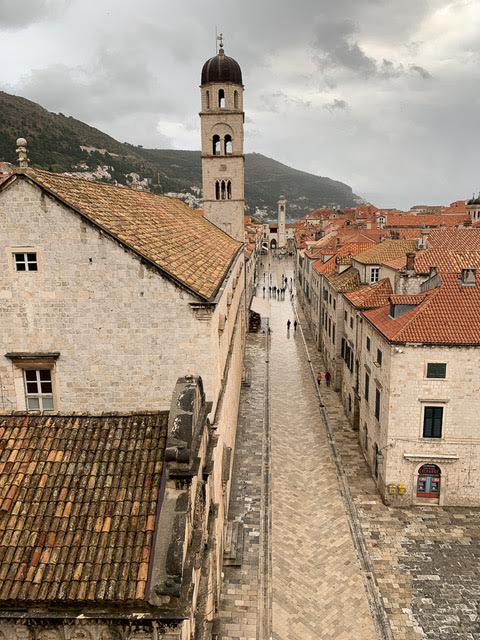
(Stradun is the main pedestrian street that runs through Dubrovnik’s Old Town.)
When I left home over a year ago to travel the world and pursue a project covering 12 countries in 12 months, I never considered myself a digital nomad. True, I sold all my things, gave up my apartment, left family and friends, and cut ties to become location independent. The move signified forward momentum, growth, freedom, adventure, and greater connection to people everywhere. World explorer! Cultural experiences! Global friendships! Living my best life! It was well thought out and grand. “Digital nomad” somehow implied restlessness, irresponsibility, immaturity, homelessness, and a certain grunge existence. The label surely didn’t apply to me.
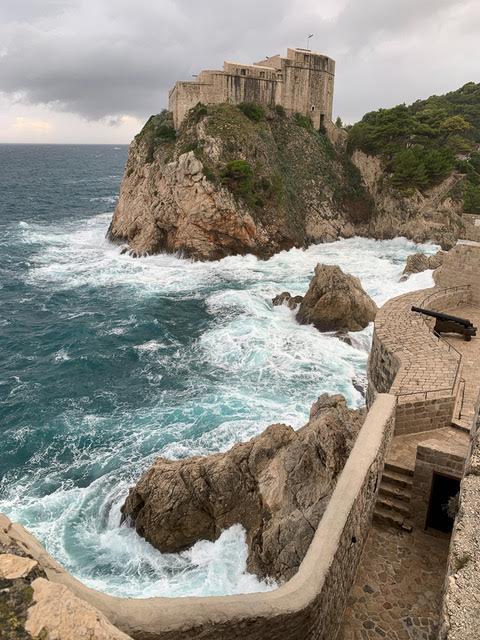
(Lovrjenac is a limestone fortress that sits just outside Dubrovnik’s city walls and overlooks the sea.)
Working while traveling
Then I started traveling, working abroad, and meeting people doing different versions of my hustle. I love stories about why people travel and what they get from it. Some of the more intriguing ones involve leaving home and never going back, splitting time between locations, or simply continuing to move. These bold moves have as many twists and turns as the sea has waves, and often dreams, hard work, love, and opportunity are the driving factors. I’ve noticed that people who figure out a lifestyle around travel and work have a certain mindset. It’s global, inquisitive, open, resourceful, passionate, and more tolerant.
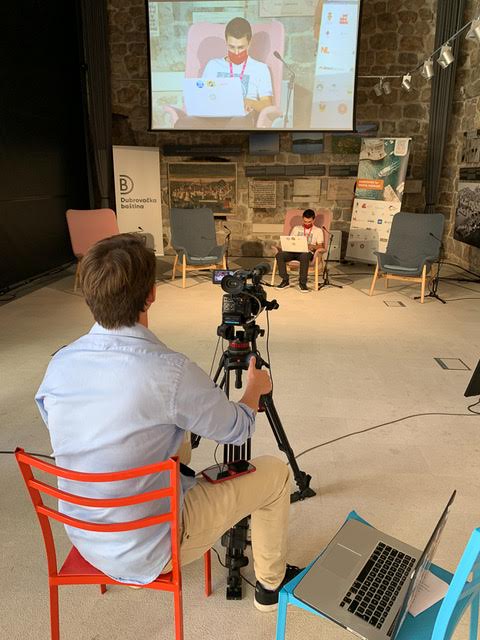
(Testing the speaker set up and camera angles before the conference.)
Who are digital nomads?
While the pandemic caused travel shutdowns and forced many workers into remote status, there’s been plenty of time to reevaluate my own life and work here in my (unexpected) new home country. What if all the people I’ve been talking to are in fact digital nomads? What if they work remotely and simply like to travel, experience different cultures and meet local people, are interested in engaging with broader communities, and want to give back? Hang on a minute, they’re just like me. My outdated stereotype was shattered. In fact, the world is embracing the positive concept of digital nomads and it’s great.
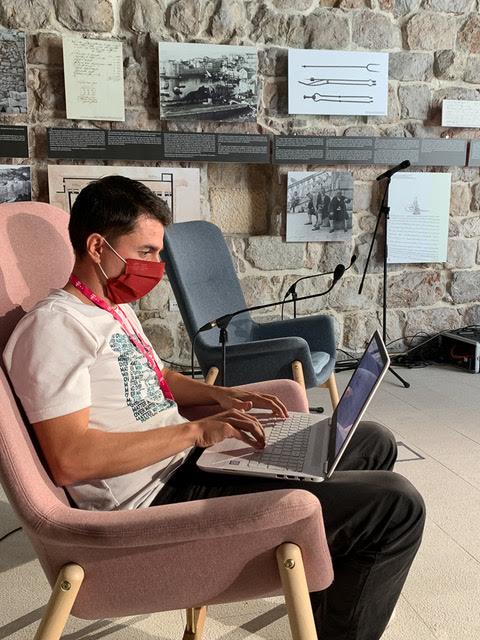
(Preparing for the first day’s agenda and panel discussions.)
Croatia’s first digital nomad conference
A marvelous opportunity is rising from the pandemic. Specifically, a handful of countries instated a digital nomad visa which allows remote workers to apply for a 1-year residency to live and work in the country. Croatia has been at the forefront and its digital nomad visa is expected to be available in early 2021.
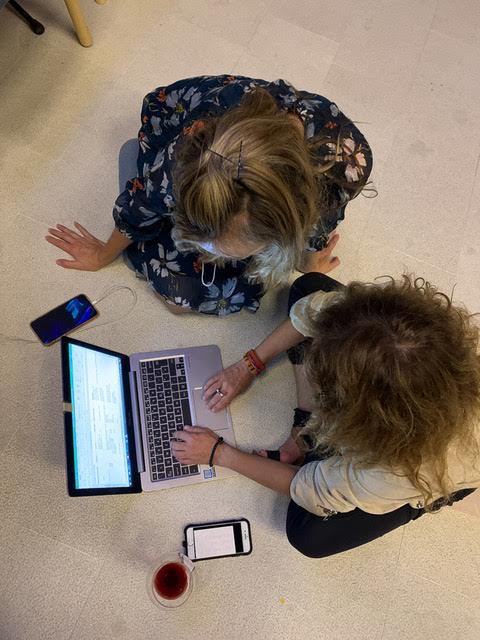
(Reviewing the conference program and final details.)
In anticipation, Croatia’s first digital nomad conference, called “Dubrovnik for Digital Nomads,” kicked off European Freelancers Week (#EFWeek2020, October 16-25) in that beautiful Dalmatian city. I had the good fortune to be on the frontlines and I worked alongside an international event team that was nothing short of rock star. To clarify, the team worked hard but we were non-paid volunteers who put together a robust two-day program that was both live and virtual.
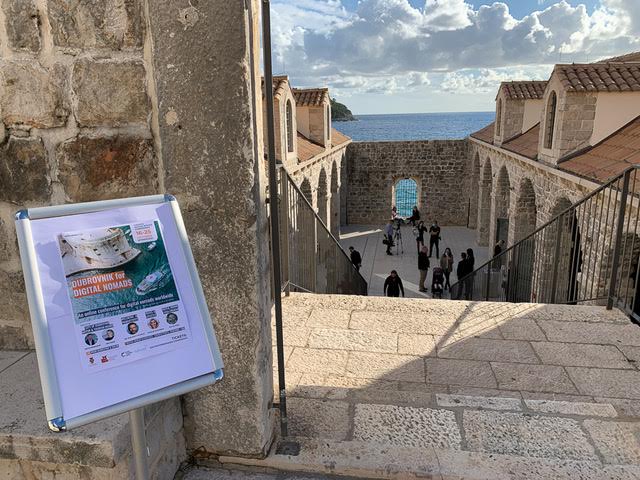
(The digital nomad conference is held at the Lazareti..)
An international team
Our team hails from Australia, Chile, Croatia, New Zealand, the UK, and the USA. All of us are in Croatia with different circumstances and reasons but we share something in common—our love for the digital nomad lifestyle and everything this beautiful country has to offer. Beyond the professional skills we brought to Dubrovnik, a range of personal pursuits reveals a depth of talent among this team that is only surpassed by unending wit.
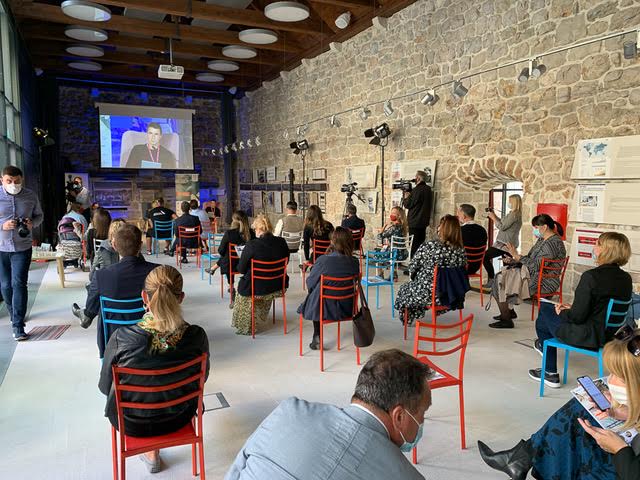
(Attendees practice social distance safety.)
One of the girls wants to start a vineyard in Chile. Another one spent a bunch of years in Cambodia and makes gorgeous wrap dresses, while another develops student education programs at the university and collaborates with international campuses. One of the guys runs a sick sailing business (in a good way) where remote workers can get the job done at sea, on a luxury yacht, with high speed internet. I want that job! Other pursuits include social enterprise work, building audio visual systems, UX coding, running coworking spaces, and operating one of Croatia’s top online news media companies. Wow. If these are the types of people Croatia is courting, I’m in excellent company.
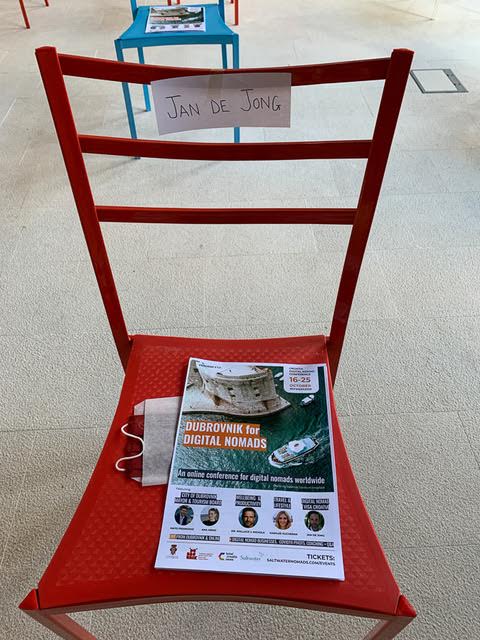
(Attendees receive a face mask with their program.}
2021’s hottest global travelers
The overriding feeling among the event team, as with the conference organizers, attendees, sponsors, and partners, is optimism for the new visa and the benefits that digital nomads can bring to communities and countries. With good understanding of who they are and reliable structures to support these people’s true needs, the lifestyle will blossom. Look for me out there waving my digital nomad flag!
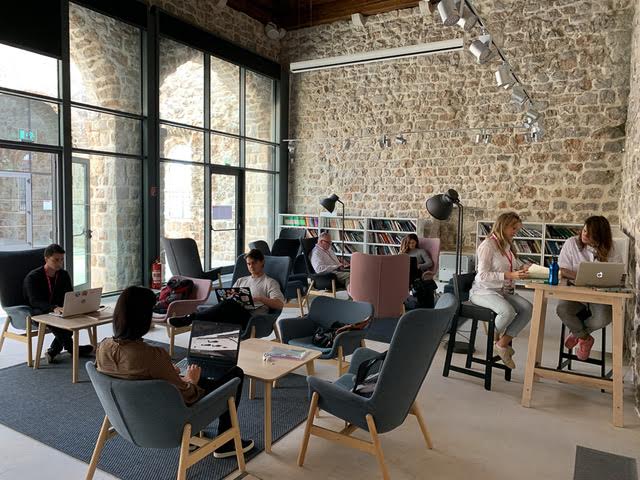
(Well-designed co-working spaces keep digital nomads efficient. This one at the Lazareti is free during Freelancer’s Week.)
Learn more about the conference and new visa at TCN’s Digital Nomads channel.
Story and photographs ©2020, Cyndie Burkhardt. www.photo-diaries.com.
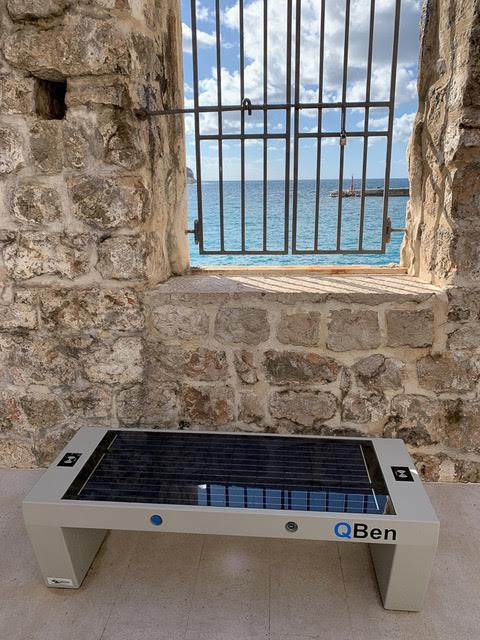
(A bench outside the co-working space doubles as a WiFi enabled device to ensure fast internet speed around the premises.)
You can read more of Cyndie's nomad journey in her column, Croatia Through the Eyes of a Digital Nomad.

(Croatia’s natural resources include abundant fresh fruit, which surprise and delight visitors and locals alike.)
Reflections on Croatia's First Digital Nomad Conference in Dubrovnik
October 20, 2020 - The first 2 days of Croatia's first digital nomad conference had plenty of stimulating content from all over the world. Some thoughts on Croatia's positioning and how to take advantage.
One of the things I have noticed over the years in Croatia is how new ideas are usually met with skepticism or are immediately dismissed. It seems at times that positive initiatives are somehow almost not welcome.
This time it is different. When I first started to write about the potential of digital nomad tourism in Croatia almost 18 months ago, the reaction was initially lukewarm, but it soon warmed up. A common perception was that digital nomads were bloggers and influencers (which they can be, but there are SO many more types of remote workers, from company CEOs to consultants), and the topic was not that interesting or significant. Two things happened to change the discussion.
The first, of course, was the global pandemic. With so many people forced to work from home, the reality of remote working entered the national discussion for the first time properly. Working from home has its pros and cons and is not for everyone, but the enforced new circumstances due to corona helped raise awareness about remote working in a way no campaign could have done.
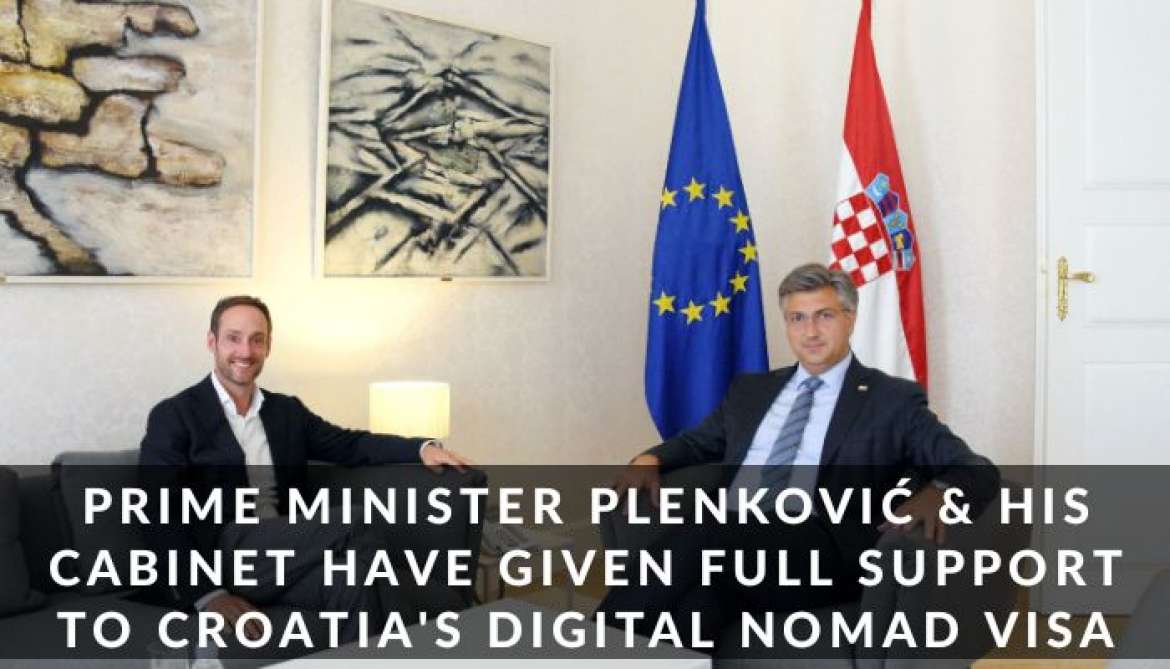
The second thing was the focused campaign of Split-based Dutch entrepreneur Jan de Jong for the introduction of a digital nomad visa for Croatia. Just 44 days after an open letter to Prime Minister Andrej Plenkovic on LinkedIn, the PM tweeted his assent, and legislation was introduced to Parliament the following day.
During the summer.
Croatian legislation and the adoption of a new idea has never moved that quickly in the 18 years I have lived in this beautiful country. People started to take notice. A prime minister reacting so proactively, the increased profile of remote working due to the pandemic, and the realisation that Croatia's current model of accidental tourism is not sustainable. Could digital nomad tourism be a new source of year-round tourism?
One of the things I am enjoying about this particular journey is how people's eyes are opened to the opportunity afforded by becoming a leading destination for digital nomads (my eyes included). The easiest way to explain it in a nutshell is very simple.
More and more of us around the world are now working in the same office. It is called the Internet. There are only two variables in this global office - connectivity (3G, 4G, 5G) and time zones. Apart from that, we are all in the same office. When we leave the office, we go home. Many people want to go home to the village they are from, their family and friends.
An increasing number of people want to go home to lifestyle and experiences, and the flexibility of the office is allowing them to choose locations all over the world to compliment their lifestyle.
Croatia is the lifestyle capital of Europe. Great weather, safe, accessible, affordable, full of natural beauty, great food and wine, things to do, EU member, offering culture and authentic experiences in abundance. Why not go for a swim in the Adriatic before dinner when you leave the office, for example?
The quickest official apart from the prime minister to grasp the opportunity was the Mayor of Dubrovnik, Mato Frankovic. I met Mayor Frankovic in late July and pitched a concept from our partners, Saltwater, to hold an international digital nomad competition to help the city develop a hands-on strategy for digital nomad tourism, working with international nomads, whose experience and input could help shape the city's direction in this new opportunity. Having spent a lot of my time in official offices during my time in Croatia, I was impressed with the speed of the response from Dubrovnik. Not only did Mayor Frankovic agree to our proposal (which will take place in April - more below), but he also declared that he was open to any new initiatives.
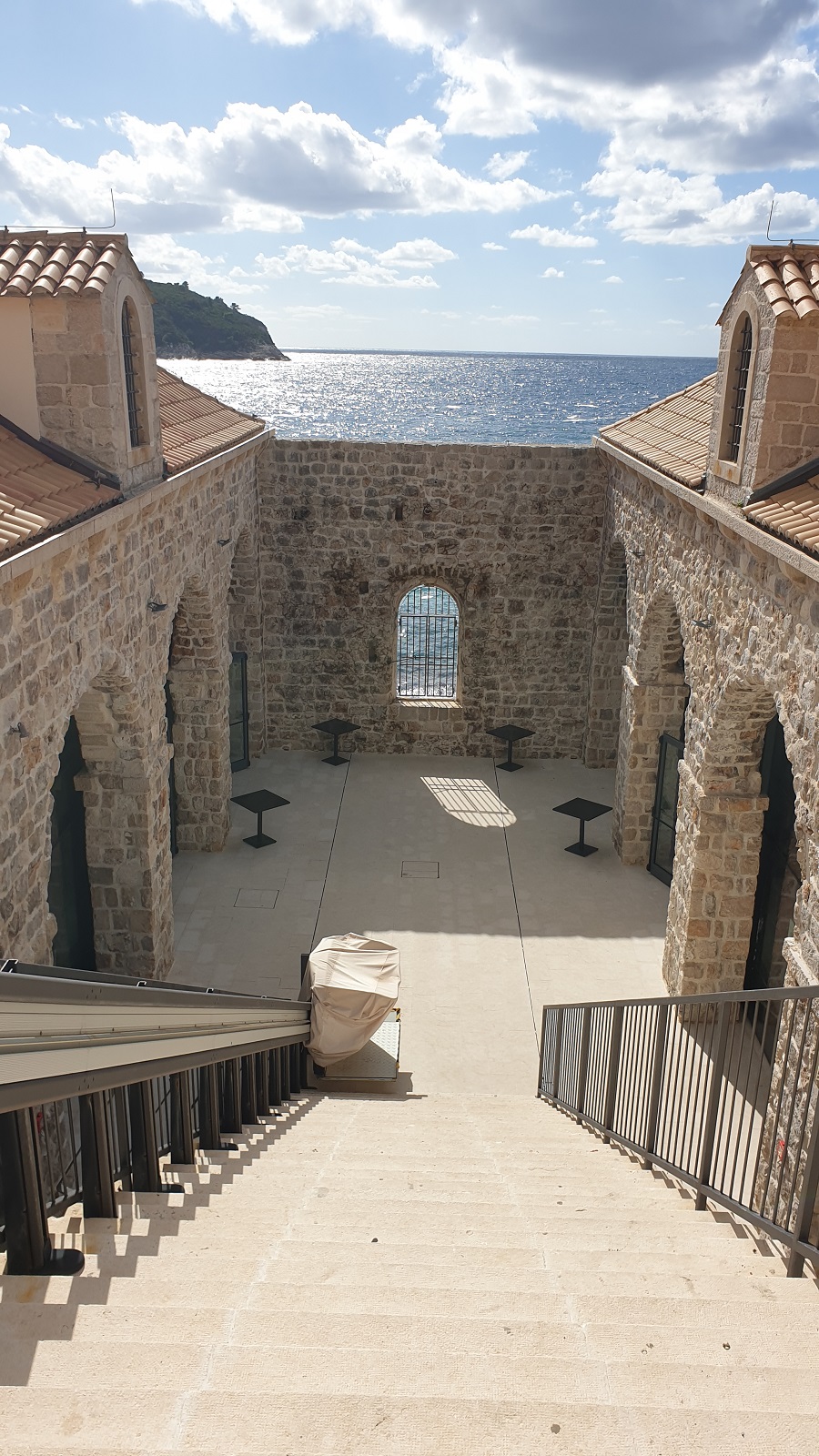
(The Lazareti, the original quarantine premises for the Dubrovnik Republic, which is where the first digital nomad conference in Croatia was held)
Which is how 'Dubrovnik for Digital Nomads', the first digital nomad conference in Croatia, came about.
It was quite an event, and one which will continue until the end of European Freelancer Week on October 25, but with the main focus on the two-day conference which ended on Saturday.
I have already written about some of the highlights - the view from British Columbia and why Croatia has the potential to be the number one digital nomad destination in the world.
Fresh from advocating for the nomad visa, Jan de Jong announced the formation of the Croatian digital nomad association, together with conference organiser Tanja Polegubic from Saltwater, and Karmela Tancabel.
And - in possibly the announcement of the conference - Glavic Clinic offered free 12-month healthcare for digital nomads in Dubrovnik who have the visa.
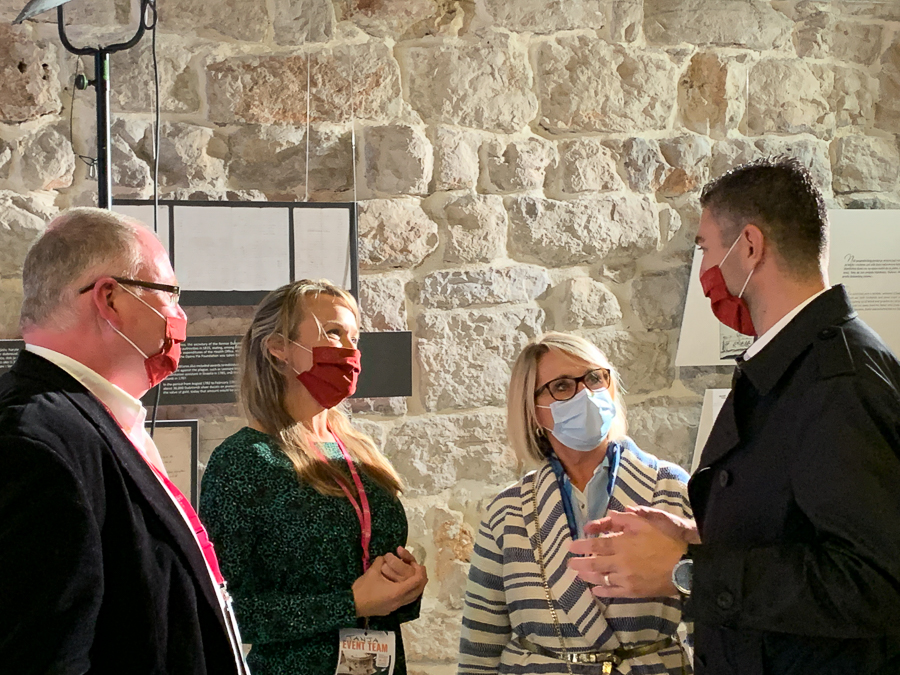
(TCN with conference organiser Tanja Polegubic from Saltwater, Deputy Mayor Jelka Tepsic and Mayor Mato Frankovic - Photos Cyndia Burkhardt)
The Glavic Clinic free healthcare announcement certainly got people talking, and I will be interviewing the Glavic presenter at the conference, Nikolina Kurtela, shortly for more details, but the generous gesture pointed to an interesting path for Croatia in this new journey - the willingness of the private sector to get involved and make this new departure a success. Most people realise that tourism will not be the same again, and it Croatia can build the foundations of digital nomad services (which go far beyond a bed and decent WiFi), there is a real opportunity to develop the sector into one which will contribute significantly, both to the economy and the mindset.
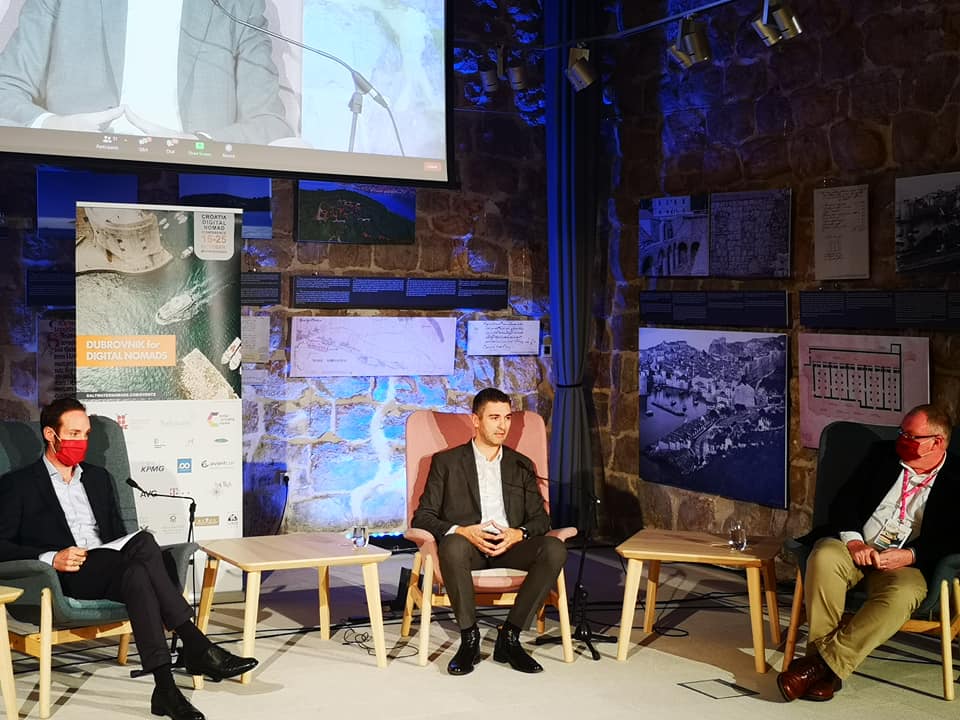
Mayor Frankovic certainly confirmed his full support for the initiative during the close panel hosted by Tanja, which also included Dubrovnik Tourism Board director Ana Hrnic, Jan de Jong and myself. There is a lot of work ahead to prepare for the international digital nomad competition in the city in April, which will give the city and wider a region to better understand and adapt to the needs of this new breed of visitor while developing a strategy in partnership with international nomads over a one-month period.
One of the key positives of the conference was the announcement of the Digital Nomad Association, which will be initially spearheaded by both Jan and Tanja. The new association will focus on five key areas of education, information, community, certification, and representation. In Jan and Tanja, the association could not have better ambassadors, and their combined vision and drive will steer this initiative in the right direction.
One of the key areas for Croatia's potential success is going to be on pricing, particularly in accommodation. There is a tendency here to accept long-stay guests, only to terminate the contract in time for the tourism season. As more nomads come, and the community grows, the association's plans for accreditation of nomad-friendly accommodation will be important.
Price will also be a factor in the visa, and here Croatia has a fantastic opportunity to get things right. As Kashlee Kacheran from Travel Off Path explained in her excellent presentation, the six nomad visas currently available around the world are wildly different in their conditions. The most expensive one, for example, is a whopping $3,000, while minimum income requirements of 3,500 euro a month in Estonia and $5,000 a month in Dubai, will exclude a significant number of would-be nomads. The terms are more favourable on Caribbean islands such as Anguilla, but with a population of just 15,000, one wonders how exciting life will be once the honeymoon beach and sunshine period has worn off.
Details of the Croatian visa are still being worked out, and nothing has been officially announced yet, but my understanding is that the basic requirements will include that application can prove that they have no criminal record, health insurance, and a level of income. That amount will be significantly lower than Estonia, at least in my opinion, as this is a great opportunity to have social media savvy nomads who are not earning megabucks enjoying Croatia and telling the world about it - you can't beat word of mouth recommendation for effective marketing. In terms of timing, de Jong explained that several ministries are proactively working on the details, in coordination with one of the tax architects of the Estonian visa, and he expects the legislation to be wrapped up by the end of the year, with the visa available in the first quarter of 2021.
There was quite a lot of comment in certain nomad Facebook groups that Dubrovnik is not a great digital nomad destination due to its high cost and with little to do.
I disagree.
One of the reasons we pitched the international digital nomad competition in Dubrovnik is that it currently suffers from an image problem of being a popular place to visit (I was genuinely surprised at the number of nomads who came to the conference, and even more who commented on social media that they were also nomading in or around the city) of being expensive with little to do outside the city walls. When the proposal was put together back in July, the monthly cost of living on Nomad List was cheaper in Dubrovnik than both Barcelona and Berlin - popular nomad hangouts.
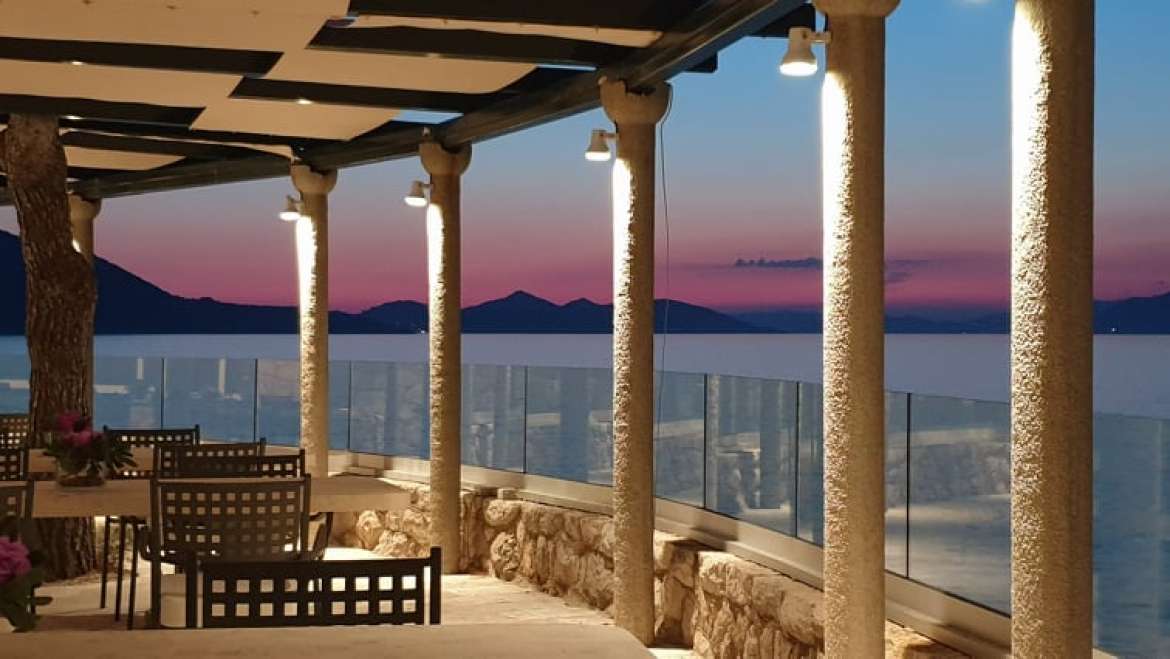
(Villa Ruza on Kolocep - just 30 minutes from Dubrovnik by regular ferry)
But seeing Dubrovnik as just the old town is a huge mistake in my opinion. You can get the very best out of this majestic city while enjoy a completely different - and significantly cheaper - experience close by, with easy access to the city whenever you want. One of the highlights of my summer was the wonderful island of Kolocep, just 30 minutes from Dubrovnik harbour by regular ferry, but a world away. (Learn more in Arise Kalamota! Kolocep, 30 Mins from Dubrovnik But a World Away).
Look at Dubrovnik region, rather than just the city, and a whole new world opens up. From the diverse island beauties of the Elaphiti, Lastovo, Mljet and Korcula, UNESCO World Heritage Sites nearby in neighbouring countries such as the Bay of Kotor in Montenegro and Mostar's famous Old Bridge, to the wine roads of Peljesac and traditional Konavle way of life, there is so much more to Dubrovnik that the city walls and all that is contained therein. And, just as the tourism offer is diverse, so too is the makeup of the digital nomad. Those on higher incomes may be happy paying the coffee prices on Stradun, while those on a budget might settle for a longterm rental in a nearby village on the water., coming into the city on the regular bus service when the need arises.
This brings us to one of the greatest things that Croatia has to offer digital nomads - choice.
It is perfectly possible to spend time and have an excellent remote working experience in Croatia (and many do) without ever visiting Dubrovnik. On a budget? This single female digital nomad from Denver had an incredible six months in Osijek, one of the best places she had ever lived. Key pluses - price, people, nature, beauty, Internet, gourmet. As thousands emigrate from Osijek as there is no perceived opportunity, here is someone who had an incredible and affordable experience having originated from the other side of the world.
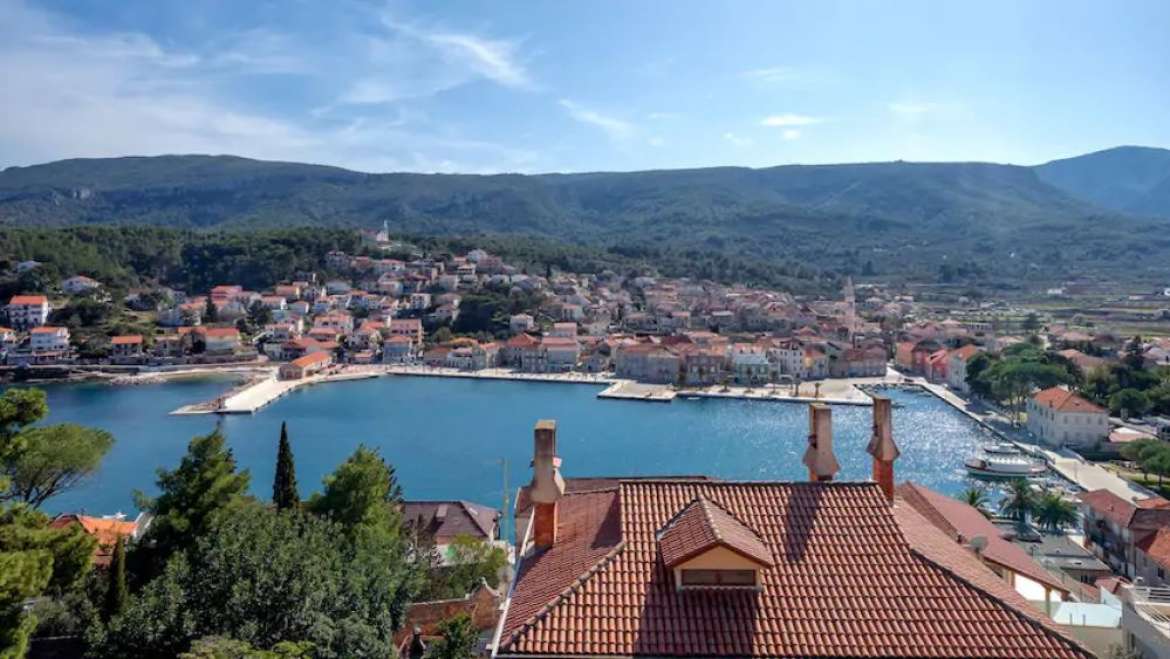
(Living the digital nomad lifestyle at Panorama Penthouse Jelsa on Hvar)
The current nomad hot spot in Croatia I would say is Split, which offers arguably the best combination of lifestyle, expat community, accessibility to islands and social life. Zagreb, however is not far behind, and we have just rented our apartment on Hvar for the month of October (another perceived expensive destination) to two nomads from Holland, who arrived with their bikes. When they are not working and drinking coffee on the terrace overlooking the Adriatic under Hvar's famous sunshine, they are exploring the island by bike. An idyllic life. Not for everyone, of course, but highly suited to this type of nomad.
Istria, Kvarner, Dalmatia, continental Croatia - filled with incredible and diverse experiences, some with different price tags, but all offering the same thing in an increasingly uncertain world - safety, authentic experiences and the unbeatable lifestyle.
And with the 12-month visa imminent, why not discover the lifestyle that suits you, from rural Slavonia to Dubrovnik's Stradun. Or try it all at your leisure. The complete Croatian experience from East to West, North to South, is extraordinary.
For more on the emerging digital nomad scene in Croatia, follow the dedicated TCN news section.
Poliklinika Glavic Announces Free 12-Month Dubrovnik Digital Nomad Healthcare
October 17, 2020 - There was one more surprise in the final presentation of the opening day of the Dubrovnik for Digital Nomads conference - an offer of free digital nomad healthcare for 12 months from Polyclinic Glavic.
It was quite a day.And it was almost over, the wine and snacks of the after party just a few minutes away.
The first digital nomad conference in Croatia had had quite an opening day. Keynote speakers on the ground and online from various location all over the world had delivered some very thought-provoking presentations. There had been a digital nomad visa update from Jan de Jong, who also announced the founding of the Croatian Digital Nomad Association.
Another highlight featured earlier today on TCN was Traveloffpath blogger Kashlee Kuteran and her inspiring presentation from British Columbia - "Croatia Has the Potential To Be World's Number 1 Digital Nomad Destination"
(Dubrovnik Deputy Mayor Jelka Tepsic, left, with Polyclinic Glavic's Nikolina Kurtela)
There had been lots to process in a very stimulating day, with just a 10-minute presentation from a health clinic separating us from a well-earned glass of wine or three.
How I underestimated the content of that presentation, as Nikolina Kurtela produced perhaps the most stunning commitment of the day.
Nikolina had a tough act to follow, coming as she did immediately after Kashlee's inspiring presentation from Canada.
A successful Dubrovnik clinic for over 25 years, and with a clinic in Zagreb and plans to open in Madrid and Amsterdam, Glavic specialises in rehabilitation therapy (learn more from their official website). Having expressed enthusiasm and support for the conference, it was left to Nikolina to show just how much Polyclinic Glavic intended to support the initiative to open the doors of Dubrovnik to digital nomads.
"We will offer free healthcare for any digital nomad in Croatia for 12 months if they have the digital nomad visa."
Wow!
Not that Nikolina thinks there will be much requirement for a doctor while visiting Dubrovnik, for the excellent reasons listed above.
As mentioned earlier, progress on the digital nomad visa is smooth, and instigator Jan de Jong expects all the legislation to be wrapped up by the end of the year, with the visa available in the first quarter of 2021.
The Glavic free digital nomad healthcare commitment is an excellent addition to Dubrovnik's emerging digital nomad story. It is also symbolic of one more exciting aspect to this story - seeing how local businesses are becoming aware of the opportunity and looking at proactive ways that they can contribute.
Nikolina has kindly agreed to an interview with TCN in which we will look at her kind offer in more detail.
For the latest digital nomad news from Croatia, follow the dedicated TCN section.
"Croatia Has the Potential To Be World's Number 1 Digital Nomad Destination"
October 17, 2020 - The first digital nomad conference in Croatia kicked off in Dubrovnik yesterday, an action-packed day including the presentation of the day from British Columbia, where the view is that Croatia has the potential to be the world's number 1 digital nomad destination.
I don't think I have been involved in organising a conference before and so I was not sure quite what to expect.
In truth, I didn't do that much regarding the actual organisation of Dubrovnik for Digital Nomads, the first dedicated digital nomad conference in Croatia. With superb support from Deputy Mayor Jelka Tepsic and Dubrovnik Tourist Board director Ana Hrnic, as well as the outstanding efforts of Tanja Polegubic from Saltwater and her VERY international team of volunteers (from Chile, Australia, New Zealand, UK, USA and, of course, Croatia), the first day more than exceeded expectations, both in terms of organisation and content.

A word on the setting. Symbolically located in the Lazareti, the original quarantine station for the city of Dubrovnik (the Dubrovnik Republic was the first to introduce quarantine way back in 1377 in Cavtat), the historic buildings have recently been renovated to high standard for multi-functional purposes, including conferences, exhibitions, concerts and - until October 25 as part of European Freelancer Week - a free coworking space for digital nomads.
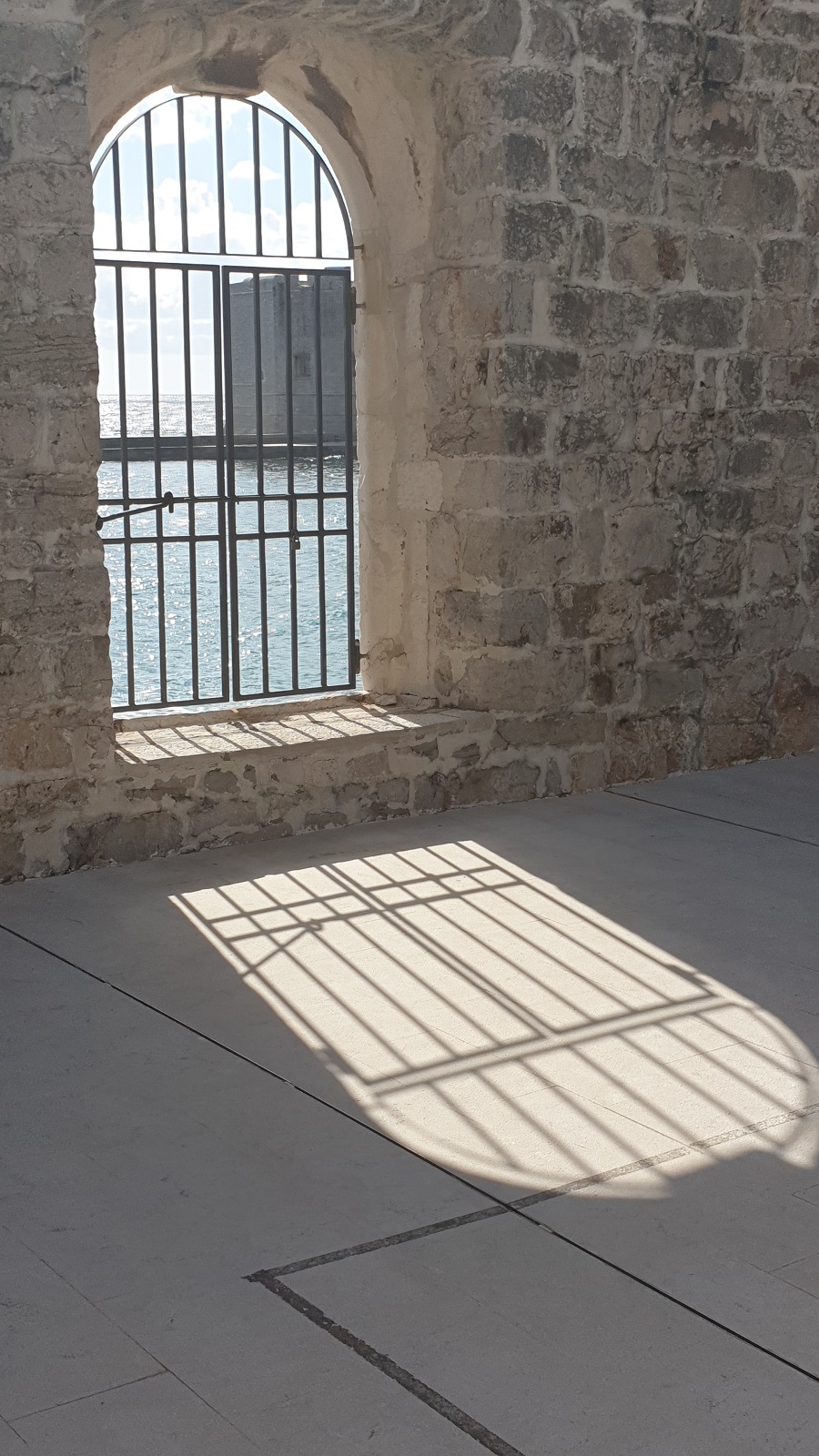
Could there be a more perfect backdrop to hold a remote worker conference during a pandemic, with views out to the Adriatic and those famous Dubrovnik city walls?
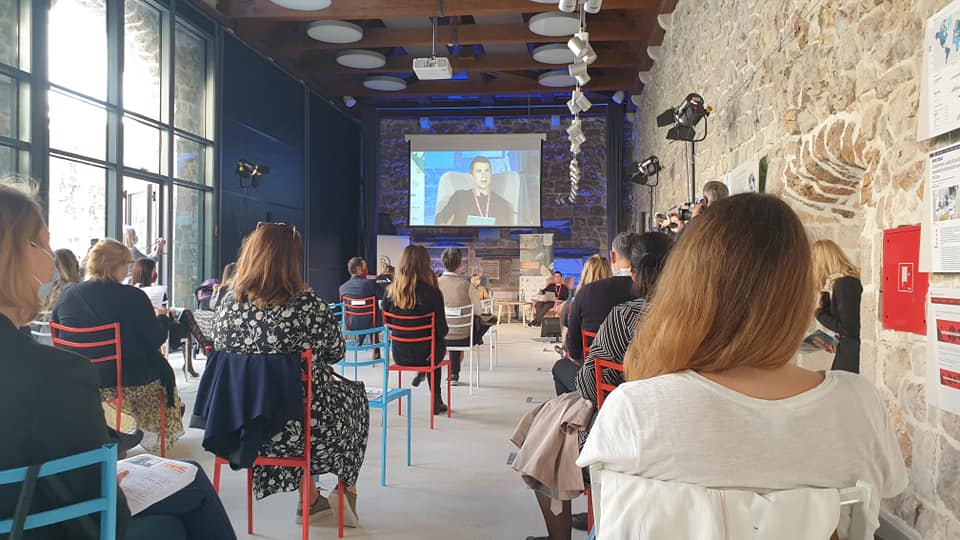
The conference had to deal with its corona challenges, of course, both in terms of social distancing, as well as the technology. With strong global interest in the conference, and with several of the expert speakers unable to attend in person, pulling off a live conference with a combination of live and Zoom audiences and speakers was quite a technical challenge, but one which the AV team pulled off superbly. Svaka cast!
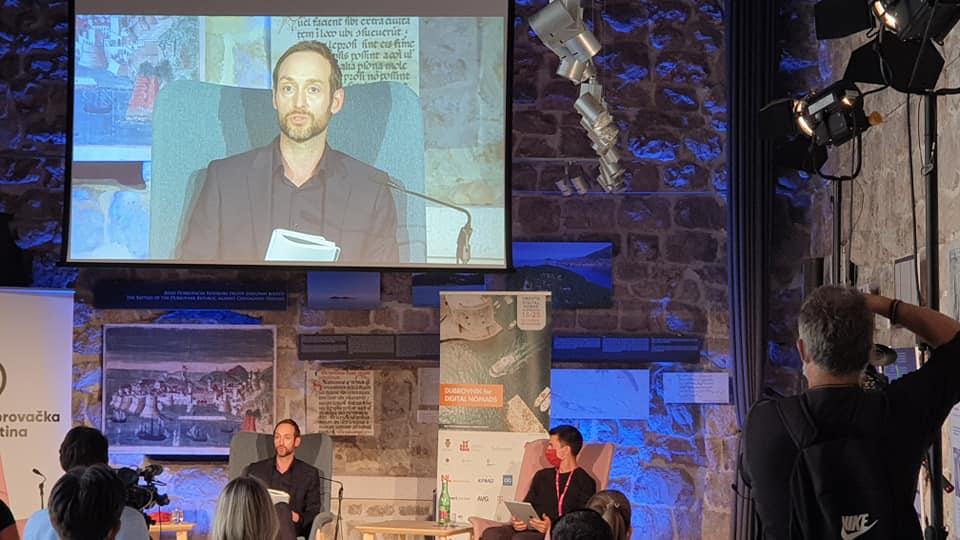
And there were certainly stars of the Croatian digital nomad world on show, including keynote speaker Jan de Jong, whose drive to introduce a digital nomad visa for Croatia has received the backing of the Prime Minister, and it should become a reality in the first quarter of 2021. Much more on Jan and his update in another TCN article coming later today.
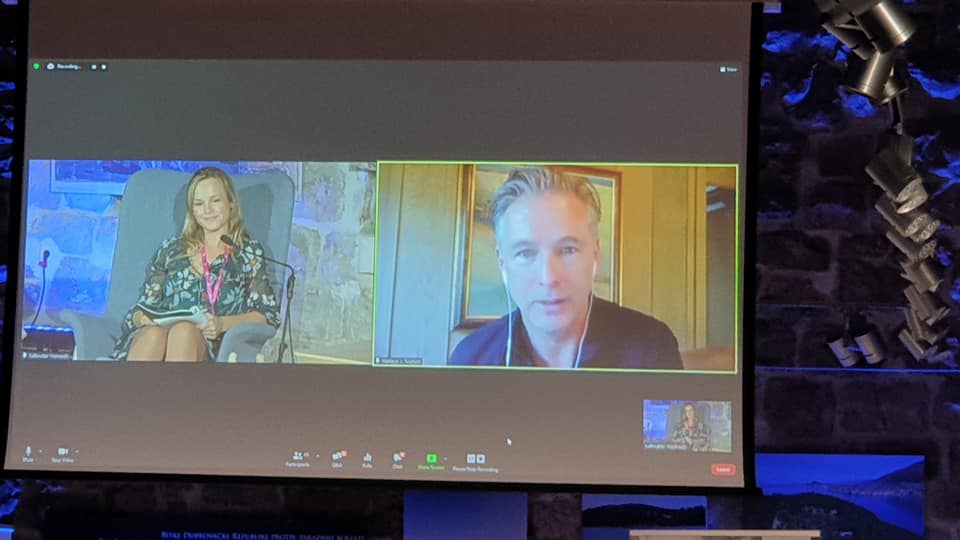
The biggest online audience was reserved for another keynote speaker, the NY Times bestselling author of 'Blue Mind', Dr Wallace J. Nichols, whose interactive session on wellbeing and productivity with Tanja Polegubic was a hit.
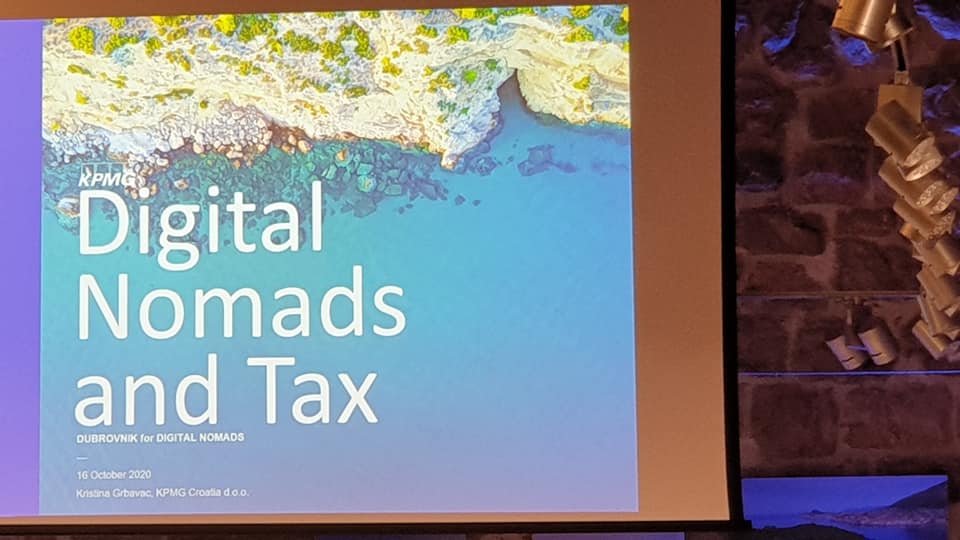
There was plenty of minute detail and facts presented, including a great session on Croatia, digital nomads and tax from KPMG.
But the speaker who really caught the eye - well, my two eyes at least - was beamed in from British Columbia and put forward the case for Croatia with the potential to become the number one digital nomad destination in the world. Kashlee Kucheran runs the successful lifestyle and travel blow, Travel Off Path, with a current focus on providing the latest COVID-19 global travel updates. It has become essential reading for travellers and nomads, with over 3 million unique visitors and rising rapidly.
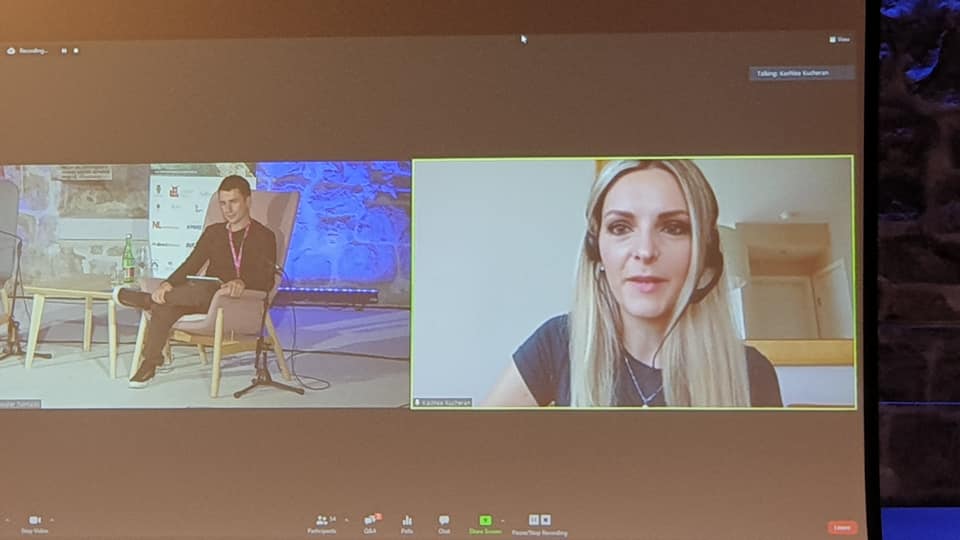
And the first feedback that Kashlee shared was that Croatia is 'absolutely buzzing' as a current digital nomad destination in her rapidly expanding community.
It was fascinating to watch her presentation, for here was an experienced traveller monitoring the global situation offering a unique insight into the current digital nomad scene around the world, and why Croatia appears to be even more competitively positioned than ever its most ardent supporters had realised. And then the most surprising aspect of Kashlee's presentation as she explained all the reasons why Croatia is such a hot digital nomad destination - she has not managed to visit yet, although by the end of her presentation she had accepted an invitation to spend a month in Dubrovnik as part of the City of Dubrovnik/Durbovnik Tourist Board/Saltwater/Total Croatia News international digital nomad competition in April.
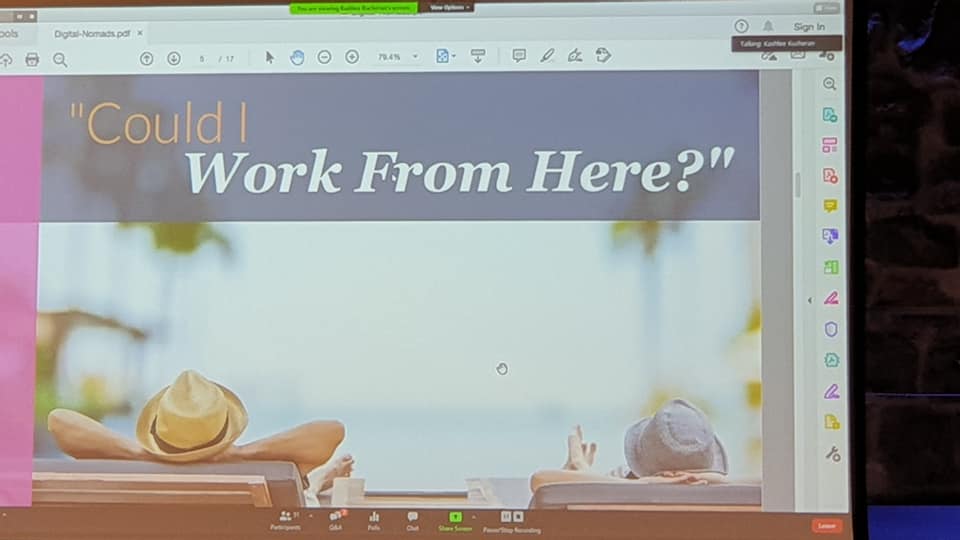
So what makes Croatia such a special digital nomad destination, according to Travel Off Parh?
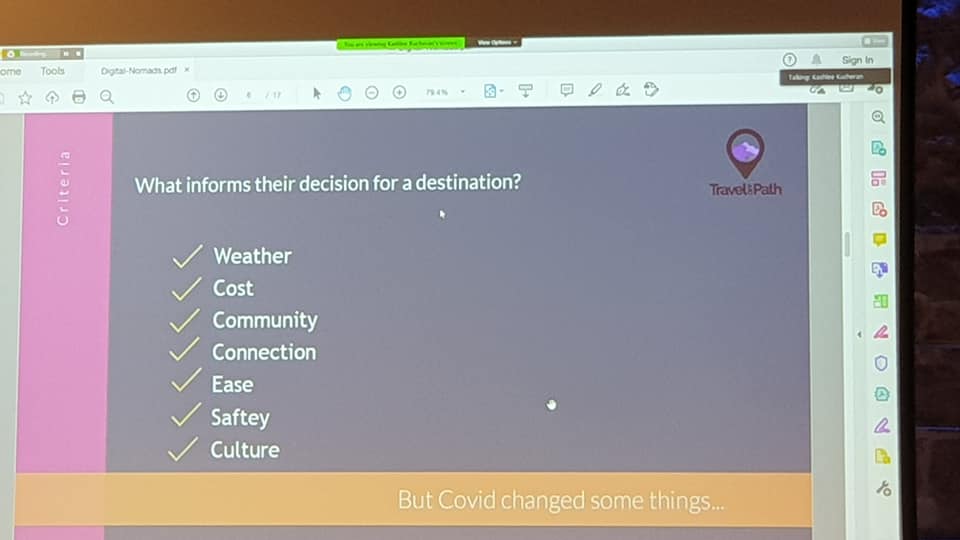
What I really liked about her presentation was the simple, step by step guide of the thought processes and considerations that were the backbone of the presentation. Providing services for digital nomads is a lot more complex than providing a bed and decent WiFi. Here are some of the main considerations to look at, all of which Croatia excels at - weather, cost, community, connection, ease, safety, culture.
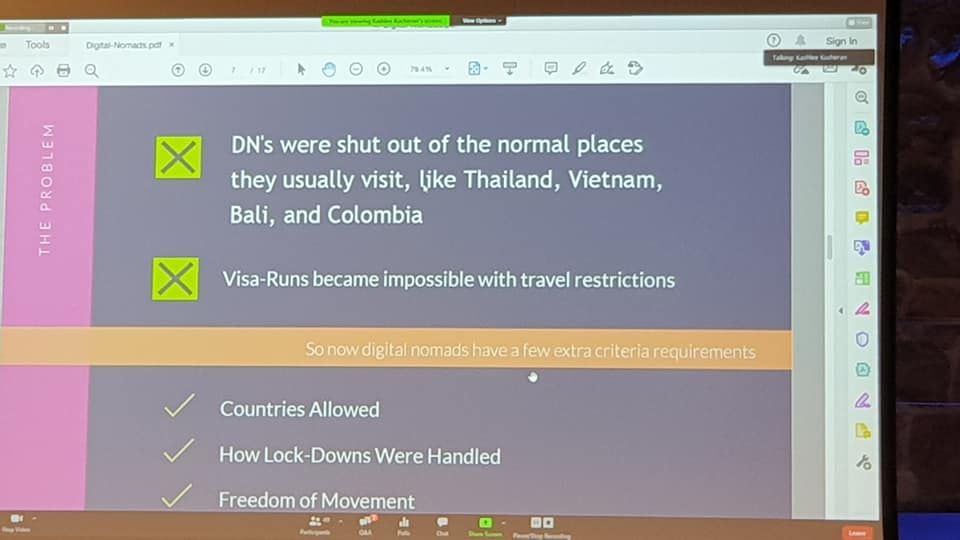
Corona changed the digital nomad landscape, with many countries no longer accessible. Additional considerations are also ones where Croatia compares favourably - freedom of movement within the country, how they handled their lockdown, and, of course, open borders
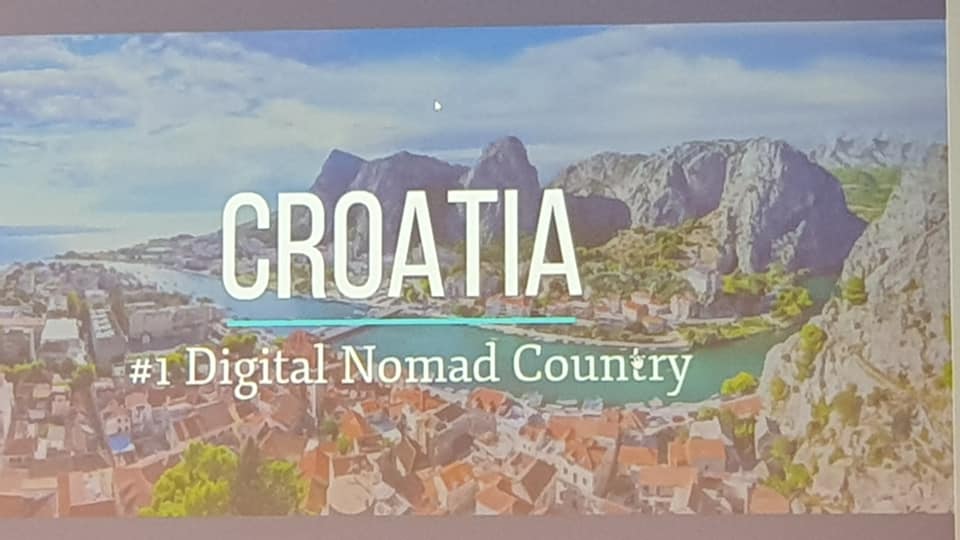
All of these factors, believes Kashlee, position Croatia as a potential leader in the digital nomad destination rankings, a position which will only be strengthened by the introduction of the digital nomad visa being championed by de Jong.
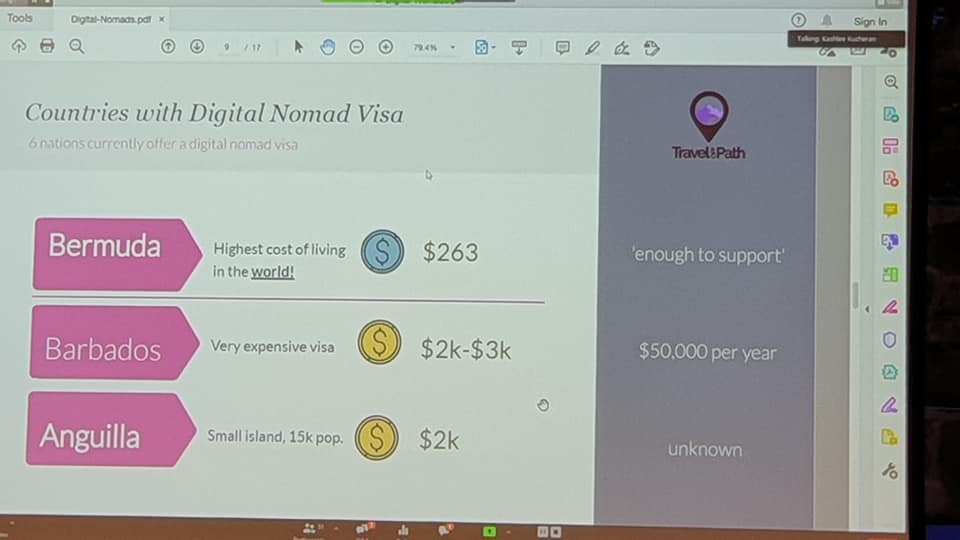
With Dubai announcing a digital nomad visa this week, there are now six countries ahead of Croatia offering this service, with Estonia currently the only one in Europe. Each country has its own criteria for the visa, and visa prices and minimum income requirements vary wildly.
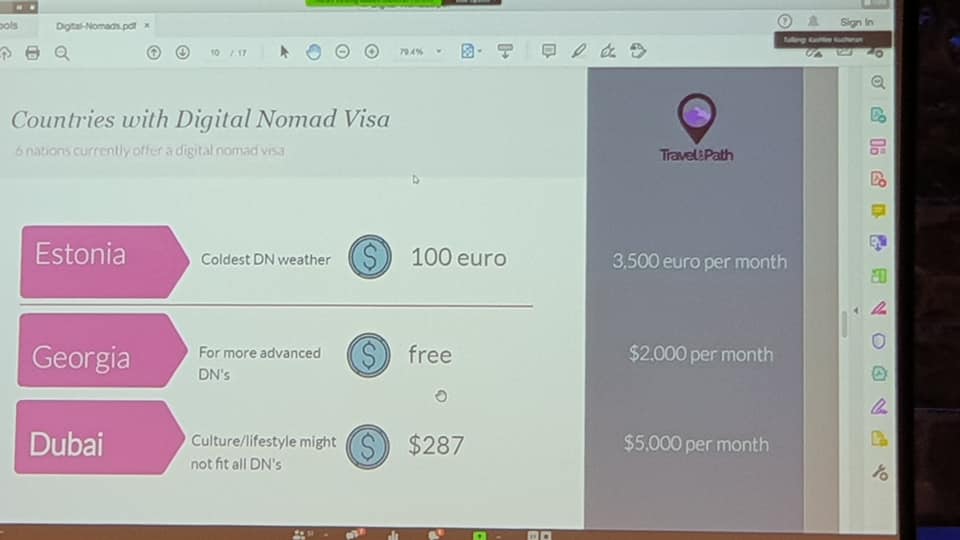
As do the destinations. While life on a small Caribbean island like Anguilla sounds idyllic, it is perhaps more for a holiday than an extended stay for a nomad looking for activities, culture and a social life. If Croatia can gets its visa pricing and income requirements right, it will be superbly positioned to offer the best package, which will include its trump card - its fabulous lifestyle.
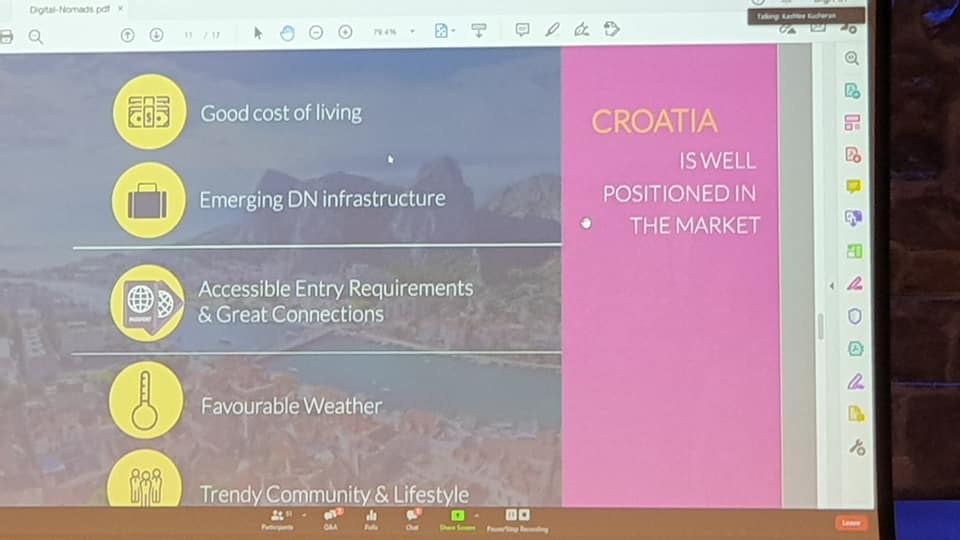
The global digital nomad view on what Croatia offers.
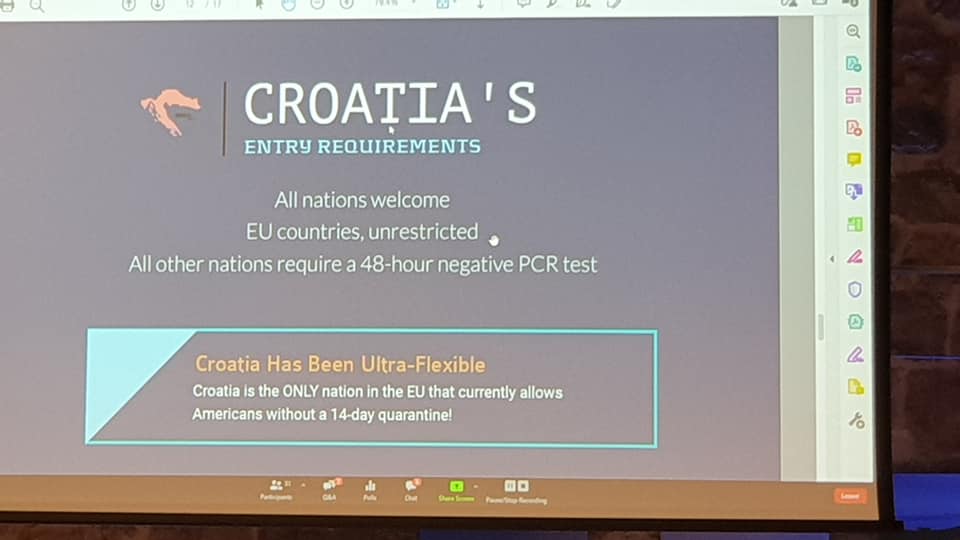
Croatia took a very different approach to other EU countries, and it remains open to all (with PCR tests required by non-EU/EEA countries), and its approach to American visitors makes it very appealing to nomads from North America.
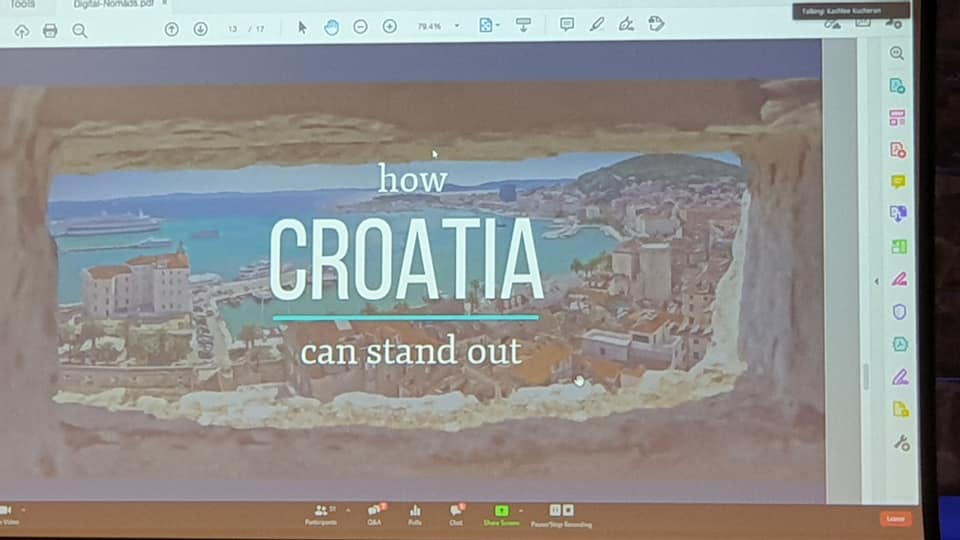
So what are the benefits to Croatia for embracing this digital nomad wave?
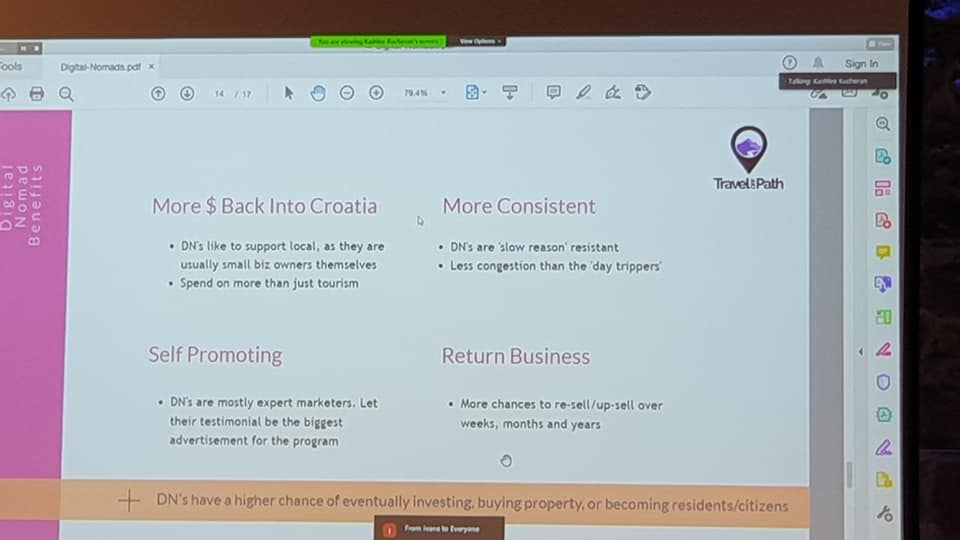
Year-round visitors investing in community, providing free marketing, and spending, spending, spending, while drip feeding the local mindset with progressive ideas and new opportunities.
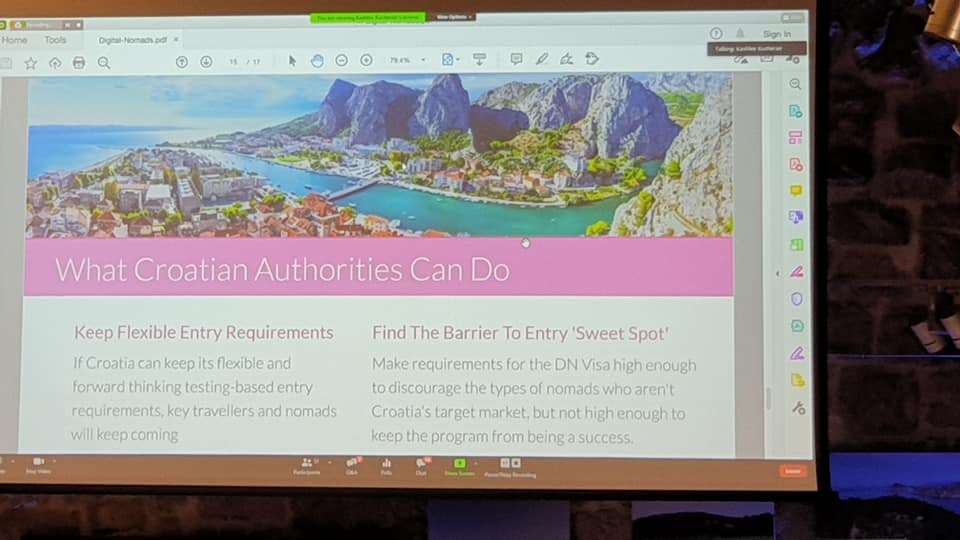
What do the Croatian authorities need to do to take advantage of this huge economic gift? Not a lot. Focus on keeping the entry requirements flexible and deliver a digital nomad visa with reasonable conditions to benefit all.
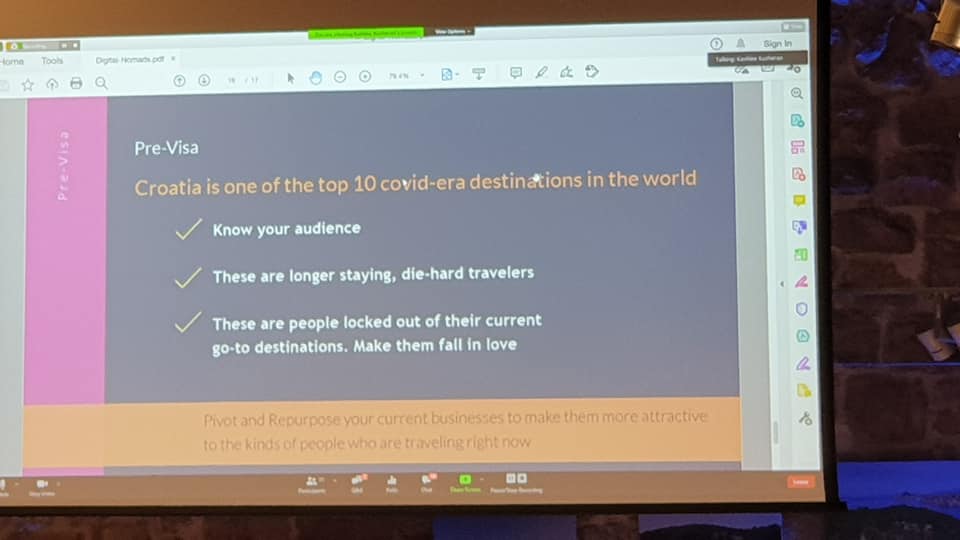
Even without the visa, Croatia is buzzing, according to Kashlee. It was, she says, one of the top 10 COVID-19 destinations in the world even without the visa. Many digital nomads are die-hard travellers, and Croatia will be an increasingly interesting destination for them with so many countries off limits.
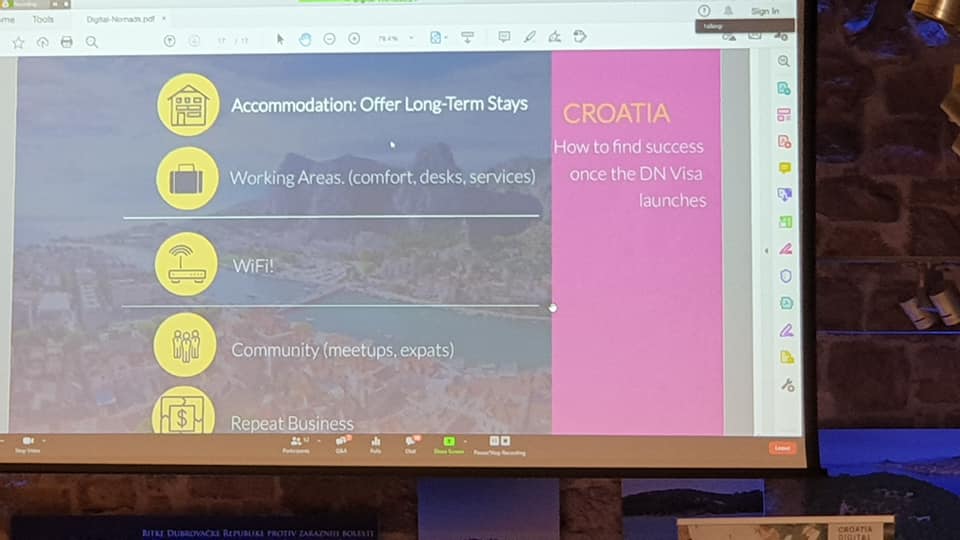
So how can businesses in Croatia prepare and adapt to the new digital nomad opportunity? Focus on the things that are important to these remote working visitors - affordable accommodation throughout the year (not being held hostage to tourist season prices), comfortable working environments, access to communities and lifestyle. And, of course, great WiFi.
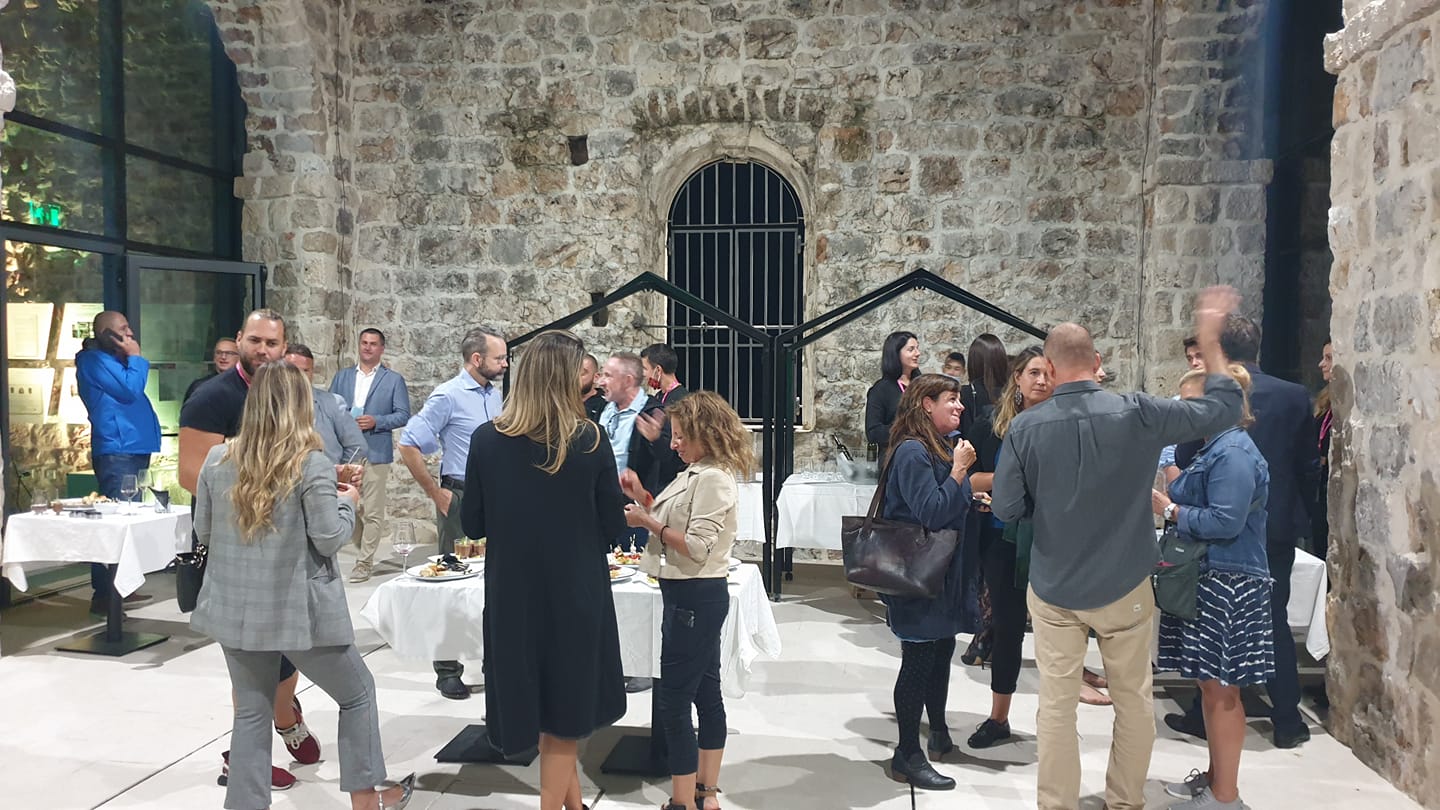
Simple steps. Achievable steps. This is a really fantastic opportunity for Croatia, and there is already a significant waiting demand. The after-party discussions on the first day (many thanks to Polyclinic Glavic - who had a sensational announcement in the presentation following Kashlee, of which more on TCN soon - for the catering) were very lively, as nomads, speakers, organisers and local residents digested the best of a very exciting day.
A great presentation from Kashlee, and we look forward to welcoming her to Dubrovnik in April. If she was this impressed by Croatia without even visiting, one wonders how she will be feeling after a month in the Pearl in the Adriatic.
To follow the latest in the Croatian digital nomad journey, follow the dedicated TCN section.
Asta Destination Expo 2020 Bringing 150 American Travel Agents to Dubrovnik in December
October 16, 2020 - Great news for Dubrovnik, which has been confirmed to host the Asta Destination Expo 2020 on the previously agreed dates, from December 3 to 6, 2020, at the Valamar Lacroma Hotel.
HRTurizam reports that the conference will be held on a slightly smaller scale to comply with all measures of the National Headquarters and maintain the safety of visitors and hosts. About 150 American agents and advisers are expected, which is an extremely great success in the current crisis and restrictions on flights from the United States to Croatia.
Asta is the largest association of travel agents globally, with over 12,000 travel agents in the United States alone, and they have a major impact on travel trends. Asta "Destination Expo" is a conference held once a year outside the United States to promote the host country, and this year it is Croatia.
At the meeting attended by the City of Dubrovnik, the Dubrovnik Tourist Board, Asta, Amcro Travel, Hotel Valamar Lacroma, Elite Travel, and HIT Dalmatia agreed that the Asta conference is the most important step for tourism because of the COVID-19 crisis and that maintaining it is an optimistic and strong message to the entire travel industry.
The Asta Destination Expo 2020 conference is a unique opportunity to promote Dubrovnik and Croatia, and hosting about 150 American tourism experts in Dubrovnik, who will negotiate deals directly with Croatian tourism service providers at B2B meetings, will certainly make this conference the most important tourism event for Croatian tourism in 2020.
Croatian travel agencies, hotels, and other tourism service providers have shown great interest in exhibiting at Trade shows, and B2B meetings as part of the Asya conference, and US agents will stay in Croatia for an average of 7-10 days, traveling through other parts of the country before and after the conference. Croatia was also named "International Destination of the Year 2020" at the annual ASTA Global Live convention. This is a prestigious award given by the Association of American Experts in Tourism ASTA, which is invaluable for Croatia's promotion.
The American market is the second most important market for Dubrovnik after the British market. Last year, 159,146 American tourists stayed in Dubrovnik (16% more than in 2018), and 442,256 overnight stays were realized (15% more than in 2018).
For the latest travel info, bookmark our main travel info article, which is updated daily.
Read the Croatian Travel Update in your language - now available in 24 languages.
Mayor Mato Frankovic Interview: Dubrovnik Welcomes Digital Nomads
October 15, 2020 - Dubrovnik Mayor Mato Frankovic has been very active promoting his city as a digital nomad destination. TCN catches up with him ahead of the Dubrovnik for Digital Nomads conference which starts tomorrow.
One of the most interesting initiatives I have been involved with this year has been the push to develop Croatia as a destination for digital nomads. With more and more people working in the same office globally (the Internet), many of whom who are looking for lifestyle rather than living in the same village, and with Croatia the lifestyle capital of Europe, the potential to match up the two opens up some rather exciting new options for Croatian tourism.
The imminent arrival of a digital nomad visa for Croatia (only the 5th in the world, and the second after Estonia) will make Croatia an even more viable option, and a debt of gratitude is owed to Dutch entrepreneur Jan de Jong for his successful campaign which resulted in Prime Minister Plenkovic tweeting his plan to introduce the visa just 44 days after receiving an open letter on Linked in from de Jong.
Other officials have been very quick to react to the new opportunity as well, among them Dubrovnik Mayor, with whom I met in late July with a digital nomad concept for Dubrovnik.
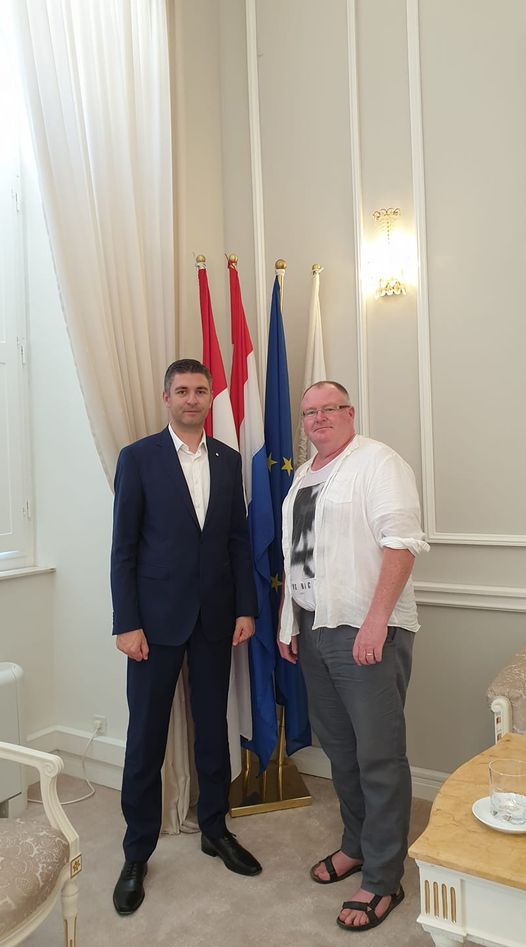
Having had many meetings with public officials over the years in Croatia, I was not quite prepared for what happened next. Not only did the mayor grasp the essence of the opportunity, but he agreed in principle to support the initiative during the meeting, and the wheels were set in motion the very next day.
The results of that meeting will be twofold - the conference starting tomorrow as part of European Freelancer Week, and an international competition for digital nomads to be guests of Dubrovnik next Spring.
- Firstly, a quick word on the 2020 tourist season, which was the most challenging in living memory. As a flight destination and with no cruise ships, Dubrovnik suffered more than most. Can you give us a little insight into how it was, as well as any positives?
The start of the tourist season coincided with the ending of lockdown, so June and July weren't bad. We coped well with COVID-19. For 60 days we didn't have any cases of infection, and we had very good announcements for September and October. With the opening, we accepted the risk that more people could be infected, and when the first indications appeared that the UK would put us on the red list, I wrote to Prime Minister Johnson to look at the data by regions and counties. But after four weeks, we ended up on the red list even though we were doing everything in our power. The numbers of those infected were crucial.
- From undertourism to overtourism. The change in tourism from last year to this could not have been starker. How have the events of 2020 shaped your thinking regarding developing tourism in Dubrovnik in the future?
At the beginning of my mandate, I was faced with the challenge of an excessive number of guests, and at the end of my mandate, we are facing a shortage of guests. I see this whole situation as an opportunity for a fresh, clean start. I believe that we will get out of this story quickly and successfully, but also wiser for the future. I am optimistic and I think we can come back relatively quickly, this time with some new rules and thinking about sustainable tourism. I also believe the vaccine will be available in the first quarter of the next year, which will ultimately allow people to travel more easily and safely.
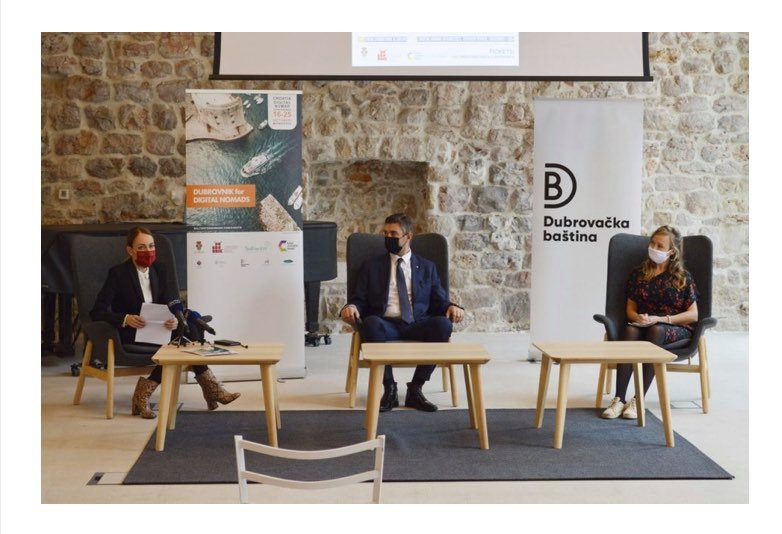
(Press conference of October 12 for the Dubrovnik for Digital Nomads conference - Ana Hrnic, Dubrovnik Tourist Board Director, Mato Frankovic, and Tanja Polegubic of Saltwater)
- One of the new opportunities for tourism in Croatia is catering to the remote worker industry. Prime Minister Plenkovic has committed to introducing a digital nomad visa for Croatia which should be in place in early 2021. What are your thoughts on that, and what could this mean for Dubrovnik?
We fully support this initiative and see it as one of the directions for the future development of tourism in Dubrovnik. We are the first city in Croatia to turn to the digital nomad market. After the Prime Minister announced an easier stay for digital nomads and special visas for them in Croatia, Dubrovnik is organizing a conference on this topic. By signing an agreement with Hrvatski Telekom (Croatian Telecom) and the Ministry of Regional Development, we are bringing a much faster Internet network to Dubrovnik, which will cover a wider area, thus enabling what is very important for digital nomads, and that is fast Internet. Everything else is already here.
- After this event in October, the City and tourist board of Dubrovnik have announced a digital nomad project partnership with TCN and Saltwater for another event next April. Can you tell our readers more about that?
This event in October will be some kind of an introduction to the whole story with digital nomads, for Dubrovnik and digital nomads to get to know each other. Next year we will go a step further. To popularize Dubrovnik as a destination for digital nomads, it is planned to organize an international competition in April. Dubrovnik would therefore host 10 winners as special guests of the city who would do their work from Dubrovnik and actively participate in shaping and developing strategies for developing these types of business.
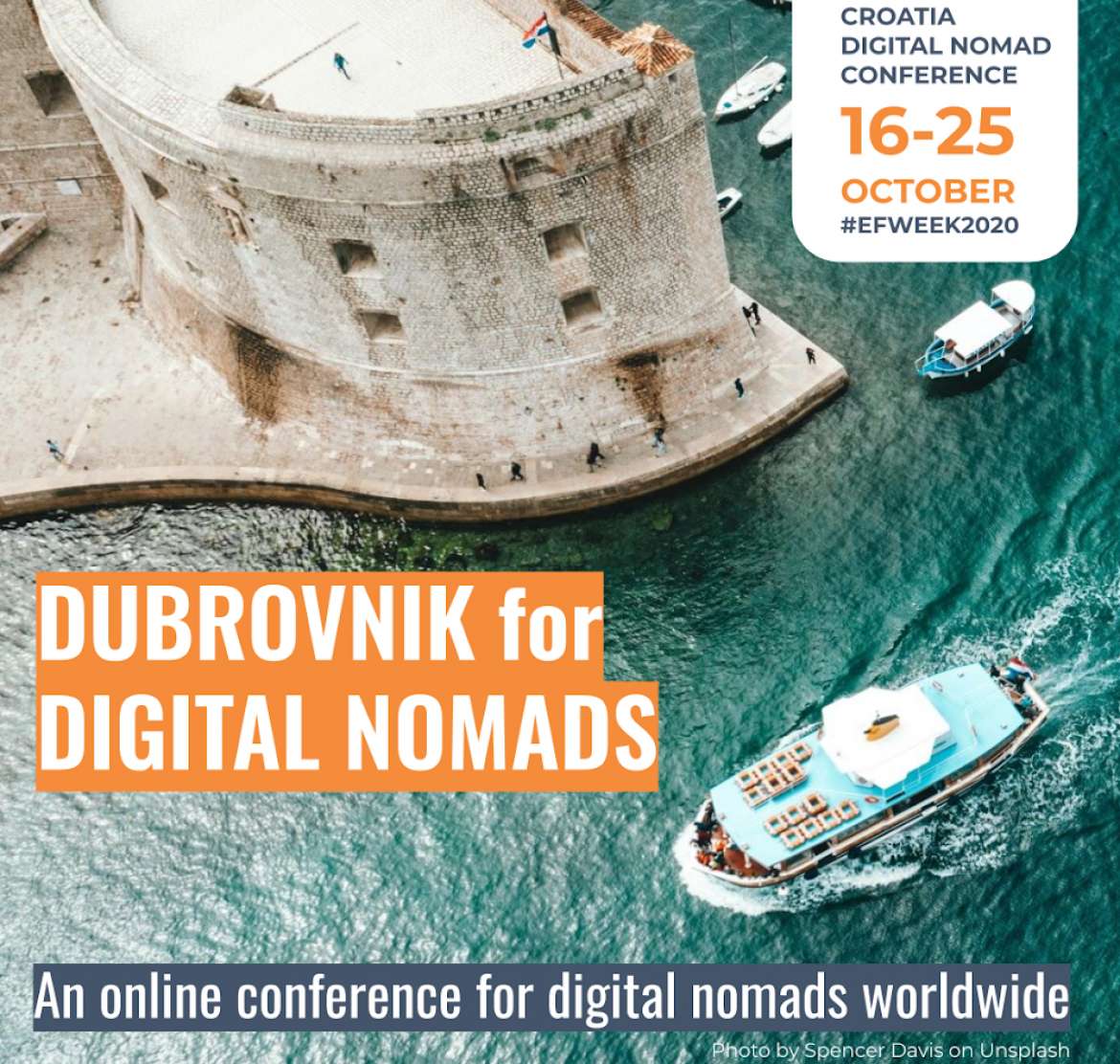
- What advice do you have for local Dubrovnik residents who are interested to know more about this digital nomad opportunity and perhaps reorientate their business/accommodation rentals in that direction?
All those who work in tourism are aware and must be aware that some things will change in the future. When it comes to digital nomads, it is important to offer better long-term rental opportunities, and the City is working to promote and provide other infrastructural conditions, such as high-speed Internet. This is, of course, an opportunity for everyone, not just for those dealing with accommodations. There are also caterers, as well as everyone else. Considering that these are the people who will stay here for longer, so they will need hairdressing services, health services, and maybe babysitting services if they are with their families, etc.
- And finally, a message from Dubrovnik for any digital nomads considering moving temporarily to Croatia. Why Dubrovnik, and what are the key things you can offer digital nomads should they choose your city?
Digital nomads are very welcome in Dubrovnik. Here they have everything for a good quality of life, from a good climate and pleasant living space to the people of Dubrovnik who have always been hospitable to their guests. They also have excellent working conditions here, and the City of Dubrovnik is constantly working to improve the quality of life and stay in this city.
To follow the latest digital nomad developments in Croatia, follow the dedicated TCN section.
- If you would like to addend the conference, either virtually or in person, Tickets are available here. There are also a limited number of tickets available free for residents of Dubrovnik if you would like to learn more about the digital nomad lifestyle and opportunity. Regarding ticket purchase, please note that once you buy a ticket, you will be emailed your receipt and then a link and instructions on how to attend within.
- Event program and speaker information is on saltwaternomads.com/events
- Speaker Bios: https://saltwaternomads.com/speakers/
- If you would like to ATTEND IN PERSON - there are some remaining spots for digital nomads who are in or get to Dubrovnik for EFWeek. Email This email address is being protected from spambots. You need JavaScript enabled to view it.
Dubrovnik for Digital Nomads: Tax Advice, Keynote Speakers, Early Bird Last Call
October 10, 2020 - Dubrovnik for Digital Nomads next week, as more details on the speaker line up are revealed, as well as a last call for Early Bird tickets.
One of the things I really enjoy at TCN is taking a topic I believe in, pushing it forward, and then watching things develop through other like-minded people with better skill sets than my own.
And nowhere is this more exciting currently than the buzz which is developing about the potential of digital nomad tourism and the imminent digital nomad visa.
I have been writing about the digital nomad potential for Croatia for some time now with articles such as How Croatia is Becoming Increasingly Attractive for the Digital Nomad Lifestyle, but it was Dutch TCN reader Jan de Jong who really moved things forward after I sent him some articles on the subject to help him prepare for a tourism conference back in May. The rest is history, with Prime Minister Andrej Plenkovic tweeting his response to Jan's open letter asking for a digital nomad visa for Croatia. As things stand, things look set for Croatia to become only the second country in Europe after Estonia to introduce the visa next year.

You can read Jan's latest LinkedIn update on the subject on LinkedIn, although if you want to get the real scoop of what is happening with the visa and digital nomad movement in Croatia in general, I advise you to tune in to Jan next week at the Dubrovnik for Digital Nomads European Freelancer Week conference, which is taking place from October 16 - 25.

One of the other early pioneers of the digital nomad scene in Croatia is Tanja Polegubic, whose Croatia-based remote work and lifestyle business Saltwater is quickly become known as a go-to resource for remote workers coming to Croatia, especially those looking for a touch of Bali on a beach in Split. While others (including myself) talk about the potential in more general terms, Tanja has put more thought into the realities of where the digital nomad revolution could take Croatia, and I heartily recommend interested parties to read her excellent piece - 10 Ways Croatia Will Be At The Forefront of Countries with a Digital Nomad Visa (DNV).
Sometimes Tanja and Jan come together to brainstorm about Croatia's digital nomad future. And next week, you can join them!
Together with the City of Dubrovnik, Dubrovnik Tourist Board and TCN, Tanja and Saltwater are hosting a series of events as part of European Freelancer Week from October 16-25, which you can attend in person or online. Tanja has done an incredible job arranging speakers for the event, a combination of Croatian experts and global names from the world of remote work.
What I particularly like about the lineup is how full it is with practical information and real-life experiences, in addition to the chance to hear from and engage with the pioneers such as Jan and Tanja. One such example is taxation and digital nomads in the Croatian context. We are very grateful to Kristina Grbavac, Director of Taxation Services at KMPG Croatia, whose tax thoughts on the subject are sure to be of great interest.
Having dealt with many local authorities over the years, I have to say that I have been very impressed by the engagement of the Dubrovnik authorities since we first approached them with our digital nomad concepts for the city back in July. Both Dubrovnik Mayor Mato Frankovic and Dubrovnik Tourist Board director Ana Hrnic will be speaking at the conference, and - together with Deputy Mayor Jelka Tepsic - the city is very focused on promoting this new opportunity. I look forward to our bigger initiative for Dubrovnik for digital nomads in April.
The sessions will be a mixture of live presentations, as well as speakers tuning in from Istanbul, Baltimore and New York. The event will also be streamed at other EF Week events in other cities, further promoting Dubrovnik as a digital nomad destination.
In addition to Jan, the other two keynote speakers are fabulous additions to the programme. Dr. Wallace J. Nichols, a marine biologist and author of the NY Times bestseller 'Blue Mind' will be discussing Wellbeing and Productivity, especially as it relates to digital nomad life. You can learn more and support the work of Dr Wallace J. Nichols over on Patreon. We are also thrilled to be joined by Kashlee Kucheran of the successful travel blog TravelOffPath.com. Kashlee will be talking about how Croatia can stand out, trends, digital nomad demographics, and how the tourism sector is pivoting to cater to digital nomads.
- Tickets are available here, including details of early bird tickets. There are also a limited number of tickets available free for residents of Dubrovnik if you would like to learn more about the digital nomad lifestyle and opportunity. Regarding ticket purchase, please note that once you buy a ticket, you will be emailed your receipt and then a link and instructions on how to attend within. PLEASE NOTE THAT THE DEADLINE FOR EARLY BIRD TICKETS IS MIDNIGHT TONIGHT.
- Event program and speaker information is on saltwaternomads.com/events
- Speaker Bios: https://saltwaternomads.com/speakers/
- If you would like to ATTEND IN PERSON - there are some remaining spots for digital nomads who are in or get to Dubrovnik for EFWeek. Email This email address is being protected from spambots. You need JavaScript enabled to view it.
See you in Dubrovnik! It promises to be an exciting meeting of minds, exploring new opportunities for tourism in Dubrovnik.
For the latest on the Croatian digital nomad scene, follow the new TCN dedicated section.
Flights to Croatia: Air France Makes Changes to Zagreb and Dubrovnik Services
October 8, 2020 - The latest news for flights to Croatia as Air France makes changes to Zagreb and Dubrovnik services.
Croatian Aviation reports that Air France has announced daily flights on the Zagreb - Paris route for October this year. Due to the impact of the pandemic, the company canceled certain departures on this line, a total of 7, from October 12 to 31. Certain flights on the route to Dubrovnik were also canceled.
We bring you the current flight schedule until the end of October.
Air France to Zagreb
Air France will operate four times a week (Monday, Tuesday, Wednesday, Saturday) during the week of October 12-18, while flights on Thursday, Friday, and Sunday have been canceled.
In the week of October 19-25, the company will operate five times a week (Monday, Wednesday, Friday, Saturday, Sunday), and flights were canceled on Tuesday and Thursday.
In the last week of October, from October 26 to 31, the company will operate 3 times a week (Tuesday, Friday, and Saturday), while flights on Wednesday and Thursday are canceled.
Air France to Dubrovnik
Air France will operate on the Dubrovnik - Paris route on October 11, 14, 17, 21, and 24. The original plan of the company was to operate regularly on this route 3 times a week, on Fridays, Saturdays, and Sundays until the end of the summer flight schedule, but the company made some changes and reduced the number of weekly flights on this route.
In total, by the end of October, the company will operate 5 more flights on the Dubrovnik - Paris route, which will then end its operations for this summer season.
Air France flies to 67 destinations in Europe, which is the usual network of destinations of this airline in the winter flight schedule. Air France allows its passengers a refund for canceled flights. Passengers can change the date of travel and destination or choose a voucher for future travel or request a refund in full. This policy applies to all tickets purchased by March 31 of the following year.
Air France has confirmed that it will operate on the Zagreb - Paris route in the winter months, announcing daily flights between the two cities, but their realization will depend on the state of reservations, and demand on this route is drastically lower due to the global pandemic.
For the latest travel info, bookmark our main travel info article, which is updated daily.
Read the Croatian Travel Update in your language - now available in 24 languages.
Join the Total Croatia Travel INFO Viber community.
"The Unbearable Weight of Massive Talent": More Details Emerge on Nicholas Cage in Dubrovnik
October 7, 2020 - More details emerge on Hollywood star Nicholas Cage in Dubrovnik, as he plays the lead in currently the only American film co-production in Europe - ‘The Unbearable Weight of Massive Talent.’
Namely, Dubrovacki Vjesnik reports that the American film crew currently in Dubrovnik filmed on Tuesday at Villa Scheherazade.
The Hollywood team led by Nicolas Cage and Chilean actor Pedro Pascal (‘Game of Thrones,’ ‘Narcos’) is currently shooting the only American film co-production in Europe, a film called ‘The Unbearable Weight of Massive Talent.’
As is expected, security guards are also engaged, both on land and at sea. And at sea, Dubrovnik divers are on-site to ensure the safety of the filmmakers.
We know so far that Cage will play a fictional 'version' of himself in the new project. According to the script, he desperately wants a role in Quentin Tarantino's film and, along the way, tries to smooth out his relationship with his teenage daughter. In the film, which should premiere in March 2021, the main star also deals with a selfish Cage from the early 90s, whom he accuses of being guilty of a series of film failures that brought him to the brink of bankruptcy.
Nicolas Cage reportedly accepted the engagement because the writers explained to Cage that their goal was not to ridicule but to honor his great career.
Cage is staying at the Hotel Argentina in Dubrovnik.
This is the ninth project to apply for the incentive program for filming in Croatia in a year when film production in the entire world has come to a halt due to the coronavirus pandemic.
The shooting of the film, directed by Tom Gormican and produced by Lionsgate, will last for 15 days. In the Croatian part of the project, 412 film workers are involved, including 97 Croatian citizens, and there will be about 300 Croatian extras.
The planned spending of foreign investors for 10 projects this year exceeds HRK 100 million, said HAVC director Chris Marcich.
He recalled that the audiovisual industry in Croatia had resumed its activities in May, under epidemiological measures, and primarily for domestic productions.
Croatia has thus been recognized in the world as a safe location for filming. With the borders reopening, intensive preparations have started for the return of foreign productions, said Marcich.
The service production company for "The Unbearable Weight of Massive Talent" is the Dubrovnik-based Ambasada Studio company of producer Erika Milutin Diller (Embassy Films).
For the latest travel info, bookmark our main travel info article, which is updated daily.
Read the Croatian Travel Update in your language - now available in 24 languages.
Flights to Croatia: easyJet Stops Dubrovnik and Reduces Split, Austrian Cancels Zagreb
October 6, 2020 - The latest news for flights to Croatia as easyJet stops Dubrovnik and reduces Split, and Austrian Airlines cancels Zagreb.
Croatian Aviation reports that easyJet completed most of its lines to Dubrovnik on the first weekend of October. Until the end of October, this well-known low-cost carrier will operate only to Split Airport.
Although easyJet flew to Pula, Zadar, Split, and Dubrovnik until the end of the season (end of October) in last year's summer flight schedule, this will not happen this year. Lines to Zadar and Pula stopped operating at the end of September, and the company planned to operate on 4 lines to Dubrovnik and eight to Split by the end of October.
easyJet further reduced traffic to Dubrovnik. In the first five days of October, it operated the last flights of this year from Bristol, Edinburgh, and London to Dubrovnik Airport. Although tickets were on sale until the very end of October, this airline decided to stop traffic much earlier than planned.
easyJet previously announced traffic on 8 international routes to Split by the end of October, but two lines, from Bristol and Glasgow to Split, were canceled.
The company now offers 6 lines to Split Airport:
Basel - Split, twice a week, until October 24,
Berlin - Split, twice a week, until October 24,
Gatwick - Split, twice a week, until October 24,
Geneva - Split, once a week, until October 24,
Luton - Split, once a week, until October 24,
Manchester - Split, once a week, until October 17.
With the end of the summer flight schedule (October 24), easyJet will suspend operations to Split Airport and end this year's summer season to Croatian airports. easyJet plans to operate to Croatian destinations in 2021 on all lines.
Croatian Aviation also reports that as confirmed to them by Austrian Airlines spokesperson, the airline will temporarily cancel the Vienna - Zagreb route in mid-October.
Austria Airlines will operate its last flight to Zagreb on Monday, October 16, while all other flights after that date have been canceled.
Exceptionally, the company plans to operate on this line during the Christmas and New Year holidays (only 10 flights), but it will depend on passenger demand. From January to the beginning of the summer flight schedule (end of March next year), Austrian will not operate on this route.
After the departure of Emirates and FlyDubai, this is another blow for Zagreb Airport. Austrian has been a long-term user of Zagreb Airport and has normally operated on this route several times a day, both in summer and winter.
After many years, this winter, Zagreb will be without a direct connection with Vienna.
For the latest travel info, bookmark our main travel info article, which is updated daily.
Read the Croatian Travel Update in your language - now available in 24 languages.
Join the Total Croatia Travel INFO Viber community.


